

Climate change IELTS essay model answer
Home » IELTS academic task 2 » Climate change IELTS essay model answer
How can you get a high band score in lexical resource in IELTS writing task 2?
If you need a high band score in IELTS writing, then you first need to understand how IELTS examiners grade this part of the IELTS test .
IELTS examiners do not give you one grade, they give you four grades that you do not see and these are added together to create an overall band score in IELTS Writing.
The four areas that they grade you on are:
- Task achievement
- Cohesion and coherence
- Lexical resource
- Grammatical range and accuracy
In this article I will look at :
- What is lexical resource?
- What can you do to improve your band score in this area?
As lexical resource is 25% of the overall score, it is very important that you choose your vocabulary carefully. Many IELTS candidates focus on answering the question and do not pay enough attention to the vocabulary and then get 5.0 for Lexical Resource and this lowers their overall band score.
To get a 6.0 or above in Lexical Resource, IELTS examiners are looking for use of a range of less common words and phrases.
Let’s see how you can do this with an IELTS essay about global warming – a popular IELTS Writing topic!
First of all, before focusing on the vocabulary, you must read and understand the question…
It is the job of governments and companies to deal with the huge environmental problems which we face. Individuals on their own can do little or nothing’. What is your opinion about this statement?
In this question, you need to focus on governments, companies and individuals so the best way to write your answer would be using separate paragraphs for each group. The essay below is divided into three main topic paragraphs; however, you will see that I bring ‘individuals’ into each paragraph to say how they can help the situation.
Ok, so now you understand the question, before writing the essay, it is ESSENTIAL that you note down some complex words/phrases that you could use in your answer. If you do not do this, you will probably not think of using them in the answer and then you get a low Lexical Resource score.
What vocabulary could you use to improve your lexical resource band score in this task?
Take a look through the climate change essay below and you can see that all the words underlined are connected to climate change.
They are words/phrases that would show the IELTS examiner that you can use a range of less common words and complex language.
In addition, there are examples of collocations – these are words that go together and are used naturally by native speakers, but are often not widely known by non-native speakers. These can impress the examiner.
Here are some examples of collocations I have used in this essay:
- To tackle climate change = to deal with climate change
- A pressing problem = a problem that needs dealing with urgently
- A moral responsibility = a duty to behave in a way that is right
- The key players = the most important people
It cannot be disputed that the world is experiencing an environmental crisis . According to recent research, if nothing is done to tackle climate change in the near future, our planet will face the devastating consequences of global warming . Undoubtedly, it is the role of governments and corporate organisations to take action, however I strongly feel that individuals need to make a contribution to deal with this pressing problem as well.
Politicians could certainly invest public finances in order to research the issues connected with climate change and, furthermore, could pass laws in relation to industrial pollution , which is making a major contribution to the greenhouse effect . Nevertheless, it requires constant pressure from citizens, either alone or in environmental pressure groups, on our leaders to make this happen. The general public can protest, lobby their politicians or vote for a political party who proposes introducing green policies if elected.
Similarly, corporate businesses should be adopting more sustainable working practices , for instance, by switching to more environmentally-friendly ways of manufacturing using renewable energy such as solar panels . Likewise, the individual as consumer can play a role here too, by refusing to purchase products which have been manufactured in a way that damages the environment.
It must also be acknowledged that individuals have a moral responsibility to care for our planet . For example, reducing consumption of fossil fuels whenever possible, becoming self-sufficient by growing their own vegetables and switching off lights when they are not needed. Although some of these actions may seem minor, the cumulative effect of everyone taking such actions would be enormous.
It is probably certainly the case that governments and international companies are the key players with responsibility for protecting our planet . Nonetheless, I am still convinced that ordinary people, either individually or cooperatively, can help to make the changes necessary to have a significant impact on our future.
As previously mentioned, the environment is a frequently used topic in both IELTS Speaking and Writing so if you need a high band score in IELTS, write a practice essay on this topic now.
Re-orientate the topic to climate change / industrial pollution 600
Global warming essay
This global warming IELTS essay lesson is mostly about the need to vary your vocabulary when you write. This means thinking about the topic of the question of course but also thinking about what the question asks you to do – i.e. talk about causes etc.
Read and understand the question – structuring the essay
Research shows that global warming is caused by human activity. What are the possible effects of climate change and what can governments and individuals do to reduce these?
This is a two part question. To answer it, you must write about both
the causes of climate change
what can be done about it by both governments and individuals
The sensible approach is to use separate paragraphs for each point. My essay below is divided into two main topic paragraphs. You could use three if you wanted to write a separate paragraph for government and individual actions.
Choosing the language
You should see that you need this language for the essay:
- climate change vocabulary
cause and effect vocabulary
suggestion vocabulary
My suggestion is that you do not start writing too quickly but plan and think about what words you need to use.
Cause and effect vocabulary .
This is key area of language and you want to vary the word “effects” in the question. Look at the red words below to see how I do this. You will find a lot more words on my lesson cause and effect vocabulary.
- cause and effect
Climate change vocabulary.
This is the topic vocabulary of the essay. If you need more, take a look at my vocabulary lesson on this:
Suggestion language .
Don’t forget this. You have options here too. The mistake is to go “must” “must” “must”. English had lots of words for this. Think of
There is now little doubt that global warming and climate change are the result of human activity. This has happened because of a failure in environmental policy by governments and a lack of concern for wasted energy by individuals.
It is almost universally accepted that climate change is the consequence of a number of environmental failings. Perhaps the most important of these is how fossil fuels such as gas and coal are still the main source of power. This is a problem because their use means that a large amount of CO2 is released into the atmosphere causing the greenhouse effect. Another serious issue is how illegal logging continues in rainforests and the Amazon Basin in particular. It should also not be forgotten that there is a connection between global warming and the inefficient use of energy by consumers in the home.
While governments must take prime responsibility for reducing climate change, individuals too can play a part. Political leaders across the globe need to cooperate so that research into renewable forms of energy such as wind and solar power is properly funded and the use of coal and gas in power stations is phased out.
They must also of course ensure that regulations against logging are properly enforced. Consumers of energy can help by insulating their homes properly and using solar panels where possible so that less energy is required and wasted. These actions should limit the amount of CO2 in the atmosphere and so reduce the greenhouse effect.
In conclusion, while global warming is a serious threat to humanity, there are a number of steps that can be taken to reduce its effects.
(274 words)
Audio tutorial
You can download or listen to the audio version here:
| Direct Download Here | Stitcher | iTunes | Spotify | Soundcloud | Transcript |
Tutorials and Tips to Prepare for Task 2
- Band 9 Sample Essay
- How to Get Ideas for Task 2
- Extremely Useful Sentences for Task 2
- Five Powerful Sentence Structures to use in your IELTS Writing test
- How to use comparisons in Task 2
- Concession Paragraphs for “do I agree/disagree essays”
- How to write an IELTS Essay Conclusion
- IELTS Cohesion and Coherence
- 3 ways to paraphrase for your Task 2 introduction
- Marking Criteria for IELTS Writing
- Topics Sentences for Your Essays
- 7 Ways to Improve your Sentences in Your IELTS Essays
- Grammar for IELTS Writing
- Academic Collocations for Task 2
- Free Essay Band Score Evaluation
- Sign up to claim your free IELTS materials
- Jump to Band 7 or it’s Free
- IELTS Writing Evaluation
- IELTS Band Score Calculator
- Book Your Online IELTS Test
- Sample Topic Answers
- Useful Sentences
- Sample Task 2 Questions 2022
- Introduction to Paraphrasing
- Model Band 9 Essay
- Five Band 9 Words
- Model Band 7 Essay
- Differences Band 9 vs Band 7 Essay
- Band 6.5 Essay
- Academic Collocations
- Topic Sentences
- Discuss Both Views
- Tutorial: To What Extent Essays
- Paraphrasing Introductions
- Essay Structures
- Essay Plans
- Describe a Pie Chart
- Using Percentages
- Map Vocabulary
- Describe Flow Charts
- Describe a Bar Chart
- How to get Band 9
- AT 1 Sample Questions 2022
- Describe a Graphic
- GT Task 1 Questions 2022
- IELTS Vocabulary
- Google Play / Podcasts
- Apple Podcast
- Android App
- Task 2 Sample Questions
- AT 1 Questions
Company addresses: HK Office: BW ENGLISH SERVICES HK Ltd, Unit 2512, 25/F, Langham Place Office Tower, 8 Argyle Street, Mongkok, Hong Kong UK Office: BW ENGLISH SERVICES, 120 High Road, East Finchley, N29ED, London, England, United Kingdom +44 20 3951 8271 ($1/min).

- Business Essentials
- Leadership & Management
- Credential of Leadership, Impact, and Management in Business (CLIMB)
- Entrepreneurship & Innovation
- Digital Transformation
- Finance & Accounting
- Business in Society
- For Organizations
- Support Portal
- Media Coverage
- Founding Donors
- Leadership Team

- Harvard Business School →
- HBS Online →
- Business Insights →
Business Insights
Harvard Business School Online's Business Insights Blog provides the career insights you need to achieve your goals and gain confidence in your business skills.
- Career Development
- Communication
- Decision-Making
- Earning Your MBA
- Negotiation
- News & Events
- Productivity
- Staff Spotlight
- Student Profiles
- Work-Life Balance
- AI Essentials for Business
- Alternative Investments
- Business Analytics
- Business Strategy
- Business and Climate Change
- Design Thinking and Innovation
- Digital Marketing Strategy
- Disruptive Strategy
- Economics for Managers
- Entrepreneurship Essentials
- Financial Accounting
- Global Business
- Launching Tech Ventures
- Leadership Principles
- Leadership, Ethics, and Corporate Accountability
- Leading with Finance
- Management Essentials
- Negotiation Mastery
- Organizational Leadership
- Power and Influence for Positive Impact
- Strategy Execution
- Sustainable Business Strategy
- Sustainable Investing
- Winning with Digital Platforms
7 Ways Climate Change Affects Global Businesses
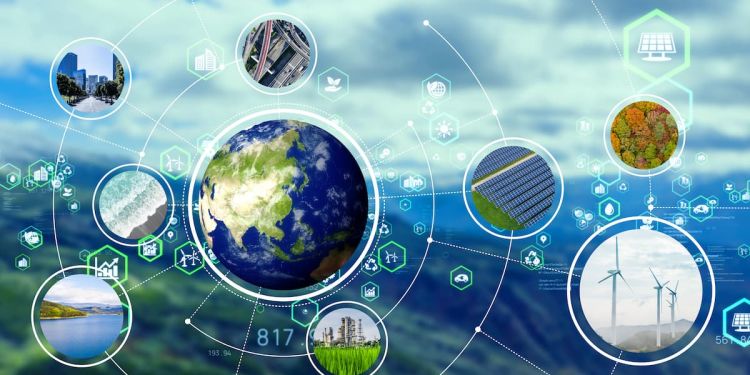
- 02 Aug 2022
Climate change has become an increasing global concern. Dependence on fossil fuels and nonrenewable resources has inflated people’s carbon footprint worldwide. Despite greater access to clean energy and awareness of the business case for sustainability , the effects of climate change are worsening. As such, business leaders must understand how to navigate its challenges in an ever-changing landscape.
Here's an overview of the negative impacts of the climate crisis on global businesses.
Access your free e-book today.
7 Ways Climate Change Impacts Global Business
One of climate change’s biggest challenges is its large-scale impact. It’s a major obstacle in global business because many countries don’t have the funds or capabilities to invest in environmentally friendly business practices. Therefore, those that want to effect positive environmental change must work harder to make up for others that can’t.
This struggle around climate change has led to several negative impacts on global business.
1. Emission Instability
Global emissions are the biggest contributing factor to climate change. Rapid response to CO2 emissions can make a substantial difference in climate health.
Emissions are primarily generated by high levels of energy intensity , or the amount of energy required to produce a given output. Higher levels of energy intensity produce higher total emissions.
To calculate total emissions, use the following formula:
Total CO2 Emissions = CO2/Energy x Energy/GDP x GDP/Capita x Population
This formula shows growing concern around the correlation between population growth and CO2 emissions production. As gross domestic product (GDP) per capita and population increase, the economy’s energy intensity for emissions decreases to keep the status quo. To reduce emissions, energy intensity must decrease at a relatively higher rate than population and GDP per capita increase.
As population and GDP per capita increase, emissions also rise. According to the International Energy Agency (IEA) , global CO2 emissions rose by six percent in 2021—their highest level in history. This problem has been compounded by individuals with access to common resources, who use them without concern for the negative impacts of their depletion—or what’s known as the tragedy of the commons .
2. Cross-Border Pollution
Environmental externalities are significant problems for global sustainability. Cross-border pollution is highly difficult to prevent because air and water pollution can spread from adjacent countries, regardless of intra-national regulations. This externality is difficult to resolve since the CO2 molecule’s origin isn't relevant to its effect on climate.
3. Industry-Specific Challenges
While climate change threatens every industry, some are in greater danger than others . For example, skiing companies are threatened by rising global temperatures that significantly hinder snowfall. In the Colorado Rockies, a popular skiing destination, the temperature has risen 3 degrees Fahrenheit since 1980 , reducing the location’s skiing season by almost a month.
Agriculture, wine, energy, and commercial fishing are also industries that could experience climate change’s most severe impacts. As a result, companies operating in those fields must proactively mitigate risk.

4. Rising Insurance Costs
Another industry impacted by climate change is insurance. Unlike other fields, insurance has a larger effect on global consumers than companies.
As the risk of extreme weather events increases, premiums for flood and storm protection will likely rise to mitigate insurance companies’ risk. This could result in higher insurance costs for many firms and negatively impact their bottom lines.
5. Psychological Stress
In addition to climate change’s tangible business impacts, it's also a mental health concern. The American Psychological Association reports that weather events associated with climate change, like flooding and prolonged droughts, have been increasingly associated with cases of depression, anxiety, and post-traumatic stress disorders.
Businesses can take a major hit when employees struggle with mental health. Since high levels of stress directly correlate with decreased productivity , businesses across the globe could experience declines in efficiency.
6. Exacerbation of Poverty
While climate change doesn’t specifically target impoverished countries, it can have a lasting effect. The populations least equipped to deal with climate change are typically those impacted the most.
Potential risks include:
- Reduced access to clean water
- Physical risks due to extreme heat
- Danger from rising sea levels
- Local businesses closing, such as fisheries and farms
- Stagnated economic growth
Climate change and severe weather patterns are likely to exacerbate impoverished countries’ and communities’ existing vulnerabilities, in turn, increasing several health and economic risks.
7. Diminished Supplies
Climate change’s environmental impacts are likely to result in diminished availability of food and water. While this can significantly impact impoverished countries, it's also likely to result in higher costs for consumers and businesses.
Furthermore, a lack of resources may cause countries to become increasingly protective over natural resources, making it harder for companies to obtain the raw materials needed to produce goods.
The Impact of Globalization on the Environment
Globalization provides many benefits for businesses but can be dangerous for the environment if executed improperly. As climate change negatively impacts global business, increased globalization contributes to climate change. Business leaders considering expanding their businesses internationally should be aware of the damaging effects doing so could have.
Here are three impacts increased globalization has had on the environment:
- Goods transport: Transportation of goods from one country to another could result in habitat destruction, increased emissions, and the introduction of invasive species into new countries.
- Overspecialization: Globalization allows countries to obtain resources from other nations, providing them the freedom to capitalize on their economic strengths. While it's important for countries to focus on those assets, overspecialization can result in problems like deforestation, overfishing, and increased pollution.
- Increased awareness: One positive side effect of globalization is increased awareness of climate change. As countries experience a prevalence of decreased biodiversity and invasive species, some have responded with more laws and regulations to address those problems.
To avoid the cycle of globalization and climate change, business leaders should be proactive about reducing the environmental risks of expanding internationally.
Related: 6 Pros and Cons of Globalization in Business to Consider
Proactively Addressing the Problem
It's easy to assume climate change won't have much of an impact until the distant future, but the world is already experiencing its effects.
“We’re already starting to have to pay some of the adaptation costs that, until recently, we assumed were far in the future,” says Harvard Business School Professor Forest Reinhardt in the online course Global Business , “as storm intensity increases, as fire intensity seems to increase, and as sea level rise begins to occur.”
The good news is that steps are being taken to address climate change’s potential impacts. Governments are implementing environmentally friendly regulations, while consumers and investors are demanding that businesses focus on sustainability.
Companies are also recognizing the benefits of sustainability on their bottom lines , investing in renewable energy and environmentally friendly packaging, and embracing responsible land-use management. These firms are creating positive ripple effects across their industries as competitors follow suit.

The Importance of Studying Global Business
Business leaders who want to internationally expand their firms should ensure they thoroughly understand the environmental factors associated with global business. It's important to account for climate change concerns and confirm their operations don’t compound problems.
Taking an online course, such as Global Business , is an effective way to obtain the knowledge and skills required to prepare for globalization’s environmental, economic, and political ramifications.
Want to learn more about the environmental impact of international business? Explore Global Business —one of our online business in society courses —to learn about the macroeconomic, political, environmental, and social considerations of international expansion. Not sure which course is the right fit? Download our free course flowchart .

About the Author
The impact of climate change on business is more than you think

There are certain impact of climate change on business, though it doesn't feature among risks in WEF report Image: Reuters/Mohammad Ponir Hossain
.chakra .wef-1c7l3mo{-webkit-transition:all 0.15s ease-out;transition:all 0.15s ease-out;cursor:pointer;-webkit-text-decoration:none;text-decoration:none;outline:none;color:inherit;}.chakra .wef-1c7l3mo:hover,.chakra .wef-1c7l3mo[data-hover]{-webkit-text-decoration:underline;text-decoration:underline;}.chakra .wef-1c7l3mo:focus,.chakra .wef-1c7l3mo[data-focus]{box-shadow:0 0 0 3px rgba(168,203,251,0.5);} John Scott

.chakra .wef-9dduvl{margin-top:16px;margin-bottom:16px;line-height:1.388;font-size:1.25rem;}@media screen and (min-width:56.5rem){.chakra .wef-9dduvl{font-size:1.125rem;}} Explore and monitor how .chakra .wef-15eoq1r{margin-top:16px;margin-bottom:16px;line-height:1.388;font-size:1.25rem;color:#F7DB5E;}@media screen and (min-width:56.5rem){.chakra .wef-15eoq1r{font-size:1.125rem;}} Climate Crisis is affecting economies, industries and global issues

.chakra .wef-1nk5u5d{margin-top:16px;margin-bottom:16px;line-height:1.388;color:#2846F8;font-size:1.25rem;}@media screen and (min-width:56.5rem){.chakra .wef-1nk5u5d{font-size:1.125rem;}} Get involved with our crowdsourced digital platform to deliver impact at scale
Stay up to date:, climate crisis.
It may be somewhat surprising at first glance that environmental factors do not feature among the top 10 risks named in the World Economic Forum’s 2019 Regional Risks for Doing Business Report . On deeper analysis, however, we can see that environmental risks – especially the impact of climate change on business – are certainly important to business leaders, not only in terms of physical threats in specific regions and countries but also in the form of economic hazards related to climate change transition.
The report is in stark contrast with the WEF Global Risks Report , where environmental risks earn the highest ratings globally. In part, this is related to the nature of the respondents to the surveys that underpin the two reports. The World Economic Forum’s Global Risks Perceptions Survey , on which the Global Risks Report is based, is driven by the Forum’s global multi-stakeholder network, which has a broader demographic, and includes more young respondents who may naturally be more concerned about long-term risks. The Regional Risks for Doing Business Report, on the other hand, reflects the opinions of current business leaders, who are burdened with solving many short- and long-term risks.
The physical impact of climate change on business : a clear and present danger
“Extreme weather events”, “failure of climate change adaptation” and “natural catastrophes” were ranked in the top 10 risks for business leaders in East Asia and the Pacific and North America in the Regional Risks Report. This reflects the vulnerabilities of countries in these regions due to water stress, prolonged periods of drought and the increasing risk of devastating wildfires, or the more obvious physical effects of global warming such as tropical storms and flooding.
In East Asia and the Pacific, environmental risks are the leading concerns for doing business, with “natural catastrophes” and “extreme weather events” ranking first and fifth respectively. On a country basis, “natural catastrophes” were ranked first in Japan and New Zealand, while in Indonesia and the Philippines they ranked third. These results are hardly surprising, given that the broader Asia Pacific region witnessed 50% of the world’s natural disasters in 2018. These catastrophes claimed over 80% of the total global deaths through natural disasters, affected over 50 million people, and cost the region a total of $56.8 billion.

Asia Pacific not only suffers the most in terms of loss of life, but its large and highly vulnerable population make the region especially susceptible to economic losses when an extreme weather event hits. Industrialization and unplanned urbanization have led to environmental degradation, which weakens the region’s natural defences against disasters. If left unchecked, the growing frequency of climate events runs the risk of eroding East Asia and the Pacific’s economic competitiveness.
In other regions, too, business leaders are nervous about the physical risks of climate change. In the Middle East and Africa, water crises rated 7th among the top 10 risks – hardly surprising for such an arid region. Desertification of the Sahel region and in the Horn of Africa are indications of how climate change is impacting life there, along with the devastation caused by Cyclone Idai in March 2019 , for which costs were estimated at over $2 billion dollars. Accordingly, in the Sub-Saharan Africa region of the report, “extreme weather events” and “natural catastrophes” topped the list in Mauritius and Mozambique.
Environmental risk continues to represent a blind spot for Africa that could hinder the economic and social progress of that region. This was highlighted in last year’s report on Climate Change and the Cost of Capital in Developing Countries by the Imperial College Centre for Climate Finance and Investment, which looked at how climate risks are incorporated into the returns of developing market sovereign bonds.
Transition risks are 'hidden' – but very real for fossil fuel-dependent nations
One interesting aspect of the report was the strong link shown between economic risks, such as “energy price shock”, and climate change transition risks. As countries transition to a low-carbon economy in pursuit of the Paris Agreement goals , fossil-fuel producing nations are vulnerable to price drops driven by a reduction in demand. The tension between vulnerability to the physical impact of climate change on business and to transition risks is felt most strongly in Canada.

The report reveals that, in Canada, business executives rated “extreme weather events” and “failure of climate-change adaptation” highly, while in the US these two risks also broke into the top 10 this year. Altered weather patterns were a factor in North America in 2018, with the “polar vortex” creating extreme low temperatures and one of the snowiest Januaries on record for the Great Lakes region, while the North American coasts experienced unusually moderate weather. Canada, specifically, is warming twice as fast as the rest of the world, with damaging impacts on physical infrastructure, coastal and northern communities, human health, ecosystems and fisheries. At the same time, however, the Canadian economy is heavily dependent on fossil fuel production in the form of crude oil, uranium and natural gas. Any global shift to renewables could strike its competitiveness hard.
This paradox is not only a Canadian problem, but also seen in other regions and countries. While certain environmental risks, such as extreme weather events and natural catastrophes, appear among the top concerns for some Latin American countries, their absence from the top regional risks to business is noticeable. Other environmental risks, such as biodiversity loss, did not appear in the top five risks for any individual economy in the region. Given the public spat between President Bolsonaro of Brazil and President Macron of France this summer, this was surprising, to say the least. Deforestation activity in the Amazon has become a matter of growing concern, both regionally and internationally. If left unattended, this could become a leading risk for many businesses around the world, as destruction of the rainforest will exacerbate threats in the form of climate change, food insecurity, health risks, trade risks, supply chain breakdown and reputational risks for business.
Have you read?
This is what ceos around the world see as the biggest risks to business, why carbon tax is crucial to curbing climate change, will low fuel prices derail the move to clean energy.
The paradox is also alive and well in Australia, with its coal-dominated exports, where “energy price shock” was the most highly rated business risk, compared to a region-wide ranking that placed it eighth. Australia is the only net energy exporter in the Asia Pacific region, and energy prices in Australia have remained volatile as a result of the country opening its domestic natural gas markets to international trade, along with network distribution issues and the closure of some coal-based energy sources. It’s an irony not lost on many that the carbon-intensive economy of Australia contributes to the global warming that is impacting the country in the form of drought, bush fires and damage to the Great Barrier Reef – a jewel in the crown of Australia’s tourism industry.
In South Asia, executives ranked “water crises” as the number one risk for doing business (up from fifth place last year), but also placed “energy price shock” fifth overall. It was rated the leading risk in Pakistan and Bangladesh. Water crises, meanwhile, ranked as the topmost risk in India, while it was second in Pakistan and fourth in Sri Lanka. South Asia is home to around a quarter of the global population, but has less than 5% of the world’s renewable water resources, making it one of the most water-scarce regions of the world. Additionally, its water infrastructure is underinvested by global standards, making it difficult to manage the floods and droughts that afflict the region, and which are expected to increase with climate change.
Yet, at the same time, there is rising demand for energy in South Asia as populations and economies grow. The region is a net importer of crude oil and is building coal-fired power stations, even while trying to electrify rural communities using renewable energy. The fossil-fuel sector is highly subsidized, which only exacerbates the repercussions of market price fluctuations. The leaders of South Asian nations need to get to grips with decarbonizing energy and other economically important carbon-intensive sectors as quickly as possible to mitigate greenhouse gas (GHG) emissions, help slow global warming and reduce the physical impact of climate change on businesses in their nations.

Energy price shock: a trigger for an economically fragile world
A very clear message from the Regional Risks of Doing Business Report is that the world economy is in an incredibly fragile position. The extraordinary period of ultra-loose monetary policy since the 2008 financial crisis did not solve the problem of indebtedness, but just managed it. The symptoms of this fragile economy have become clearer this year, with lower growth and higher debt increasing the likelihood of “fiscal crises”, the most highly rated risk in the report, rising from sixth in the adjusted 2018 results. The global public finance crisis is closely related to four of the other top 10 risks about which chief executive officers are also the most worried. These include “unemployment or underemployment”, “energy price shock”, “failure of national governance” and “profound social instability”.
“Energy price shock” is the risk that is most clearly linked to transition risk, one that deeply concerns the private sector – although it is present in the responses for different reasons. In the fossil-fuel producing nations, it’s a key risk. In the Middle East and North Africa, this risk ranked first and “fiscal crises” second. Oil and gas remain primary sources of public revenue in this region, so a sharp fall in energy prices could require governments to make delicate spending adjustments, and more so when energy prices are heavily subsidized.
But it’s not only the traditional oil-based producing economies that are affected. The top moving business risk in Europe compared with 2018 is “energy price shock”, which rose eight places to become the fourth major risk, taking first place in Serbia and appearing in the top five in another 12 countries, including France and Spain. Meanwhile, the transitional costs from the region’s number-one energy source, coal, to greener energies threatens to add further burdens on energy prices. As does the ability to deliver a “just” transition, in which jobs in carbon-intensive industries are changed without bringing destitution to thousands.
Don't miss any update on this topic
Create a free account and access your personalized content collection with our latest publications and analyses.
License and Republishing
World Economic Forum articles may be republished in accordance with the Creative Commons Attribution-NonCommercial-NoDerivatives 4.0 International Public License, and in accordance with our Terms of Use.
The views expressed in this article are those of the author alone and not the World Economic Forum.
The Agenda .chakra .wef-n7bacu{margin-top:16px;margin-bottom:16px;line-height:1.388;font-weight:400;} Weekly
A weekly update of the most important issues driving the global agenda
.chakra .wef-1dtnjt5{display:-webkit-box;display:-webkit-flex;display:-ms-flexbox;display:flex;-webkit-align-items:center;-webkit-box-align:center;-ms-flex-align:center;align-items:center;-webkit-flex-wrap:wrap;-ms-flex-wrap:wrap;flex-wrap:wrap;} More on Climate Action .chakra .wef-17xejub{-webkit-flex:1;-ms-flex:1;flex:1;justify-self:stretch;-webkit-align-self:stretch;-ms-flex-item-align:stretch;align-self:stretch;} .chakra .wef-nr1rr4{display:-webkit-inline-box;display:-webkit-inline-flex;display:-ms-inline-flexbox;display:inline-flex;white-space:normal;vertical-align:middle;text-transform:uppercase;font-size:0.75rem;border-radius:0.25rem;font-weight:700;-webkit-align-items:center;-webkit-box-align:center;-ms-flex-align:center;align-items:center;line-height:1.2;-webkit-letter-spacing:1.25px;-moz-letter-spacing:1.25px;-ms-letter-spacing:1.25px;letter-spacing:1.25px;background:none;padding:0px;color:#B3B3B3;-webkit-box-decoration-break:clone;box-decoration-break:clone;-webkit-box-decoration-break:clone;}@media screen and (min-width:37.5rem){.chakra .wef-nr1rr4{font-size:0.875rem;}}@media screen and (min-width:56.5rem){.chakra .wef-nr1rr4{font-size:1rem;}} See all
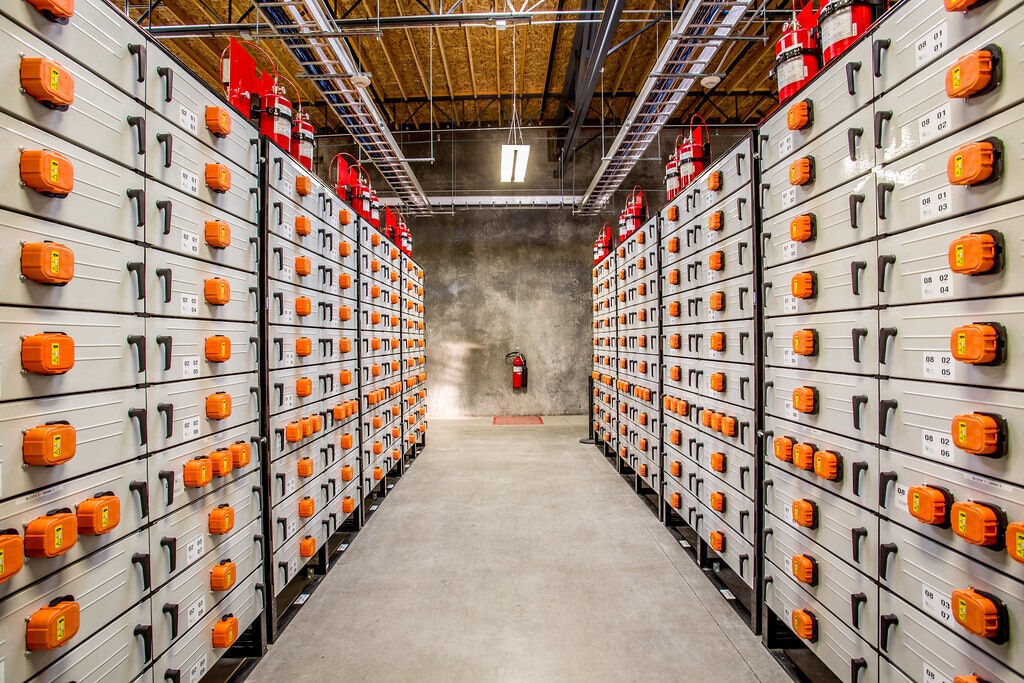
How to finance battery energy storage and ensure constant clean energy
Prasad Thakur and Labanya Prakash Jena
May 10, 2024
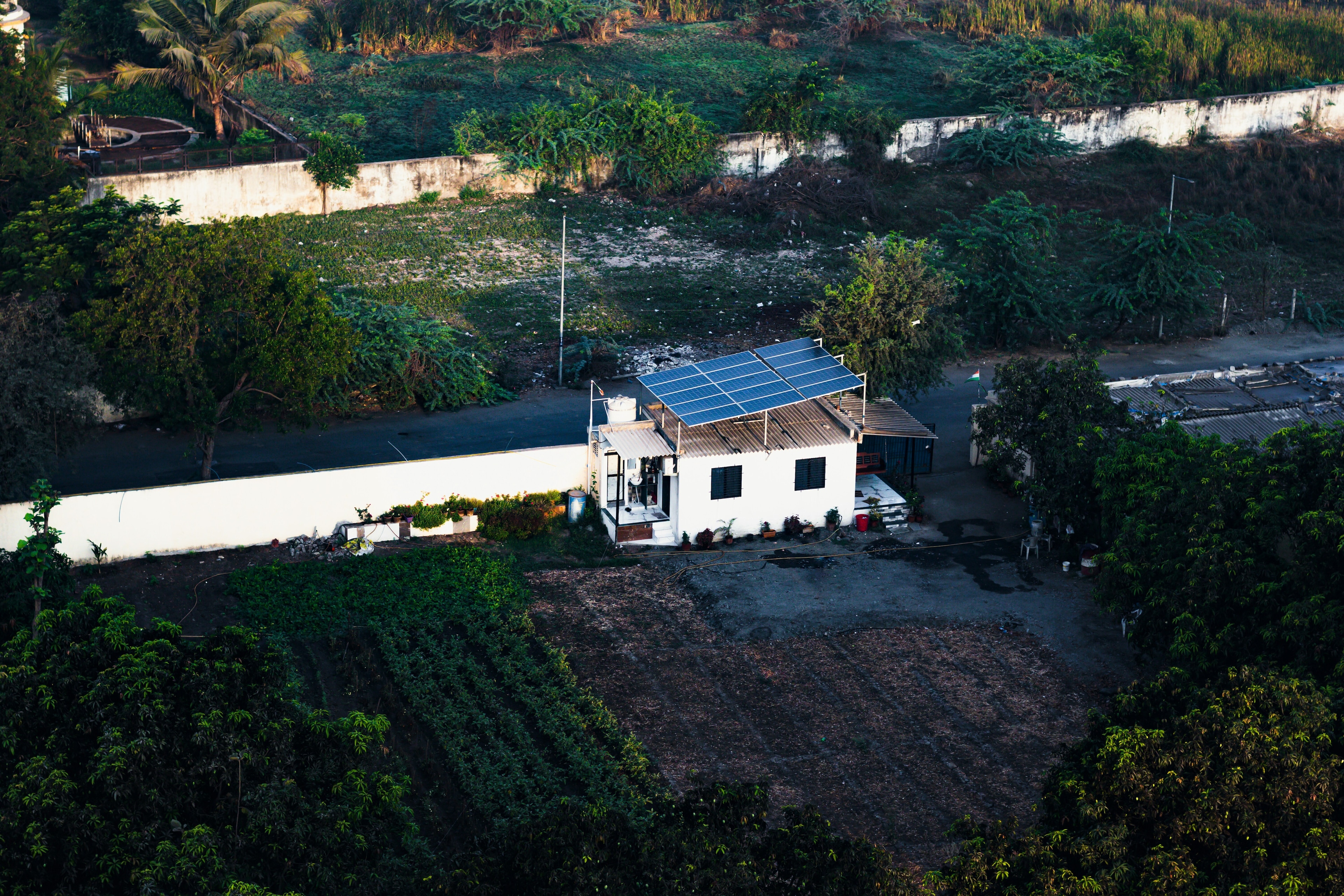
How renewable energy serves as a catalyst to broader social change
Jennifer Rosen

How immersive technology is helping us and our leaders engage in climate dialogue
Flora McCrone and Jemilah Mahmood
May 9, 2024

From Athens to Dhaka: how chief heat officers are battling the heat
Angeli Mehta
May 8, 2024

Funding the green technology innovation pipeline: Lessons from China

4 ways the climate crisis could be coming for your income
Simon Torkington
What climate change really means for businesses
- Entrepreneurship & Innovation
- Strategy & Leadership
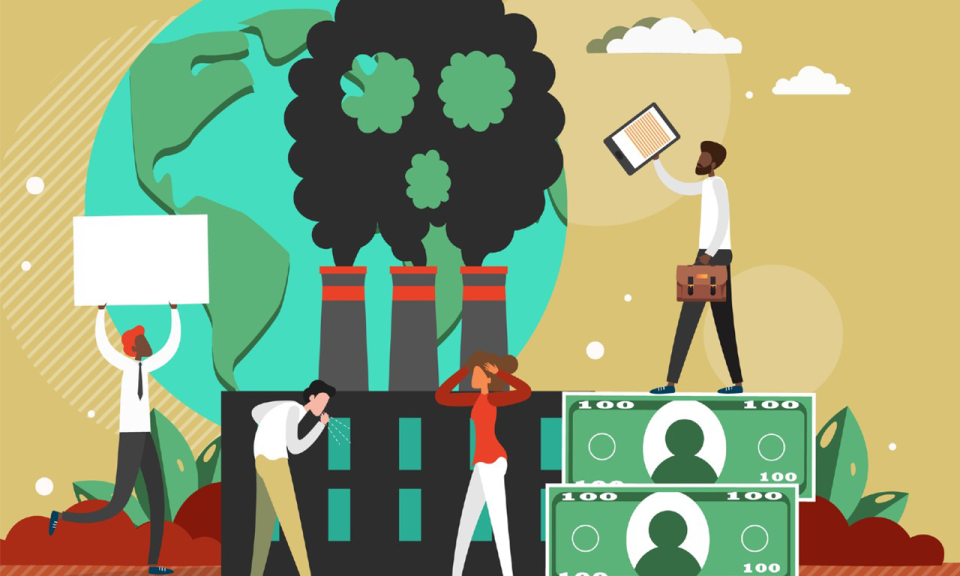
Dr Cláudia Custódio discusses how rising temperatures affect business performance, and why it’s vital that we understand the macroeconomic impact of climate change
Do we fully understand the economic impact of climate change? We suspect businesses will be hurt by a hotter planet, but with global rises in temperature of up to two degrees Celsius on the horizon, we need to know who will suffer and by how much. If we know in advance which countries and which parts of the economy will be hit hardest, policymakers can act to mitigate the damage. As received wisdom says – what gets measured gets managed.
In our research , we’ve taken an in-depth look at the impact of rising temperatures on firms to measure how they perform, and to understand which businesses will adapt and cope better than others.
The impact on business
We know already that vulnerable sectors such as agriculture will take a hit from climate change . We also know that severe weather – flooding, storms, heatwaves and fires – damages supply chains and disrupts business. There’s also evidence that some retailers benefit from climate change as demand rises for air conditioning, bottled water and electricity.
But beyond these obvious impacts, is there a direct effect of global warming itself on business performance? And can we separate demand-driven effects from supply-side effects?
We’ve managed to tie down the results by looking at sales by firms across the US and how they fare when temperatures rise. Specifically, we compare how suppliers of the same client fare when temperatures rise for some but not all of them. This way we’re able to take into account fluctuations in consumer demand for a finished item or product – if, for example, appetite for ice cream increases but demand for chocolate declines as temperatures rise.
As we suspected, a local rise in temperature leads to a drop in suppliers’ sales. Specifically, a local temperature rise of one degree Celsius leads to a two per cent fall in sales to a client over the course of a year. And the data show that suppliers of the same client from regions less affected by warmer climes don’t experience the same drop. So, what’s going on?
Rising temperatures and falling sales
There are three main factors that can have a negative impact upon business. If it’s too hot, then staff productivity declines – employees are absent or higher temperatures make working conditions more difficult – particularly within the heat sensitive industries we focused on, such as manufacturing. We also suspected that a company’s finances play a part – deep coffers might allow larger companies to relocate or divert resources to different branches, whereas cash-strapped businesses don’t have the wiggle room to adapt.
And then there is the ease with which a client could simply buy the same thing elsewhere. The more standardised the product, the easier it is to switch supplier. Clients do this if production is affected, or even if they just suspect it will be; it’s a safer bet to go with a supplier in Colorado if temperatures are on the rise in Arizona, for instance. Geography also plays a part here: the more distant a supplier, the more transactional the supplier-client relationship, and the more easily the client finds a substitute than if there’s a personal or local connection.
A local temperature rise of one degree Celsius leads to a two per cent fall in sales over the course of a year
Manufacturers – suppliers in particular – are vulnerable to rising temperatures. And if they’re cash strapped, as many are since the pandemic, they are particularly at risk, because they have no funds to help them adapt, shift premises or change operations, whereas more leveraged companies can better weather the storm.
One might deduce that falls in sales will follow in proportion with rising temperatures – a two degrees Celsius rise in temperatures leads to a four per cent fall in sales and so on. But we know that as temperatures rise, the meteorological effects can be more severe and unpredictable, leading to greater disruption. We’ve also seen that bouts of extreme weather can lead to even steeper declines in sales.
Extending our understanding
It’s vital that we understand the impact of the inevitable rise in temperatures. Our research focused on the US but could be applied to a certain extent anywhere in the world, particularly the countries which are more exposed to climate change.
Policymakers need to know what climate change means at a macroeconomic level – specifically how the revenues of firms will be affected. At a company level, wages might be affected and some companies in highly competitive sectors may even go under because of hotter climes. But if policymakers understand how and when to intervene – when to extend finance or to help improve working conditions – we’ll be better prepared to deal with the fallout.
This article draws on findings from "Economic Impact of Climate Change" by Cláudia Custódio (Imperial College London; Centre for Economic Policy Research; European Corporate Governance Institute), Miguel A. Ferreira (Nova School of Business & Economics), Emilia Garcia-Appendini (University of Zurich) and Adrian Lam (Imperial College London).

About Cláudia Custódio
Monthly newsletter.
Receive the latest insight from Imperial College Business School
Green finance: how competition can bring polluting firms into the fold
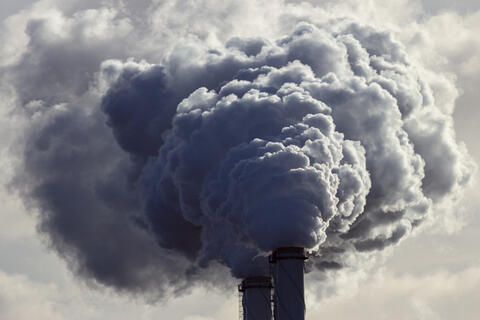
No company wants to be the dirtiest on the block. If there were a clear and consistent way to gauge and reward progress, even the most polluting firms would find the will and the funds to decarbonise.
Agribusiness is not ready for the sudden shocks of climate change

Climate change models suggest temperatures will gradually rise, but the agriculture sector is not prepared for the acute risk of extreme weather events
- Harvard Business School →
- Business & Environment →
Confronting Climate Change
- Accelerating Solutions
Effects of Climate Change
- Electricity
- Food & Agriculture
- Buildings & Cities
- Transportation
- Industrial Production & Materials
- Finance & Investing
- Effects of Climate Change →
The time to drive innovation is now
The climate crisis is here.
Climate change is affecting many economic sectors: The time to drive innovation is now
- Altering the value of real estate , causing some areas to appreciate and others to decline
- Presenting new financial risks , disclosure requirements , and insurance considerations
- Posing operating challenges for businesses and their supply chains
As climate change continues, businesses, governments, and citizens will have an opportunity to work together to:
- Implement new policies for mitigating or adapting to climate change at the local, state, federal, and international levels
- Transform the sources of energy we rely on, how and where we grow food , the modes of transportation we use, the infrastructure of cities , and the materials we use to build them
- Adapt to climate change by making vulnerable areas more resilient and decide when to rebuild, restrict development, or retreat
Economic development and innovative technologies have contributed to climate change—and are also essential to address it. Government policies can create incentives to accelerate progress.
The Intergovernmental Panel on Climate Change (IPCC), which includes more than 1,300 scientists from around the world, forecasts a temperature rise of 1.4° to 5.5° Celsius by 2100 with serious consequences for business and for the natural systems on which our current ways of life depend.
According to the IPCC, greenhouse gas emissions must be net zero by 2050 to keep global warming below 1.5° C and thereby avoid the most serious impacts of climate change. [1]
Major Effects of Climate Change
Temperature rise.
18 of the 19 warmest years on record have occurred since 2001 [2] . July 2019 was the hottest month on record on Earth [3] .
Sea Level Rise
By 2050 at least 570 cities and some 800 million people will be exposed to rising seas and storm surges [4] .
Extreme Weather
Annual weather-related natural disasters (hurricanes, intense rain, tornadoes, snow storms) have more than tripled since the 1960s. Every year, these disasters result in some 60,000 deaths, mainly in developing countries [5] .
Climate Migrants
In 2018, 16 million people were displaced by weather-related disasters across 148 countries and territories, including 764,000 displaced by drought in Somalia, Afghanistan, and elsewhere [6] .
Poor Health
Climate change is predicted to be responsible for 250,000 additional deaths each year between 2030 and 2050 as the result of heat exposure among the elderly, childhood undernutrition, malaria, and other diseases exacerbated by climate change [7] .
The variable rain patterns associated with climate change will make safe drinking water less available in many regions, increasing the risk of water-born disease, famine, and draught [7] .
Air Pollution
Burning fossil fuels causes air pollution that is responsible for killing 7.3 million people annually. The use of cleaner energy and improved transportation has the potential to dramatically improve health by reducing the major sources of air pollution [7] .
Mass extinctions and ecosystem collapse
Some 1 million species are now threatened with extinction, with climate change as a major cause [8] .
Changing agricultural conditions
The growing region for wheat moves further north each year in the U.S., Europe, and Russia [9] . Storms, heat, and drought also impact crop yields and prices.
Visualizing Climate Change Effects
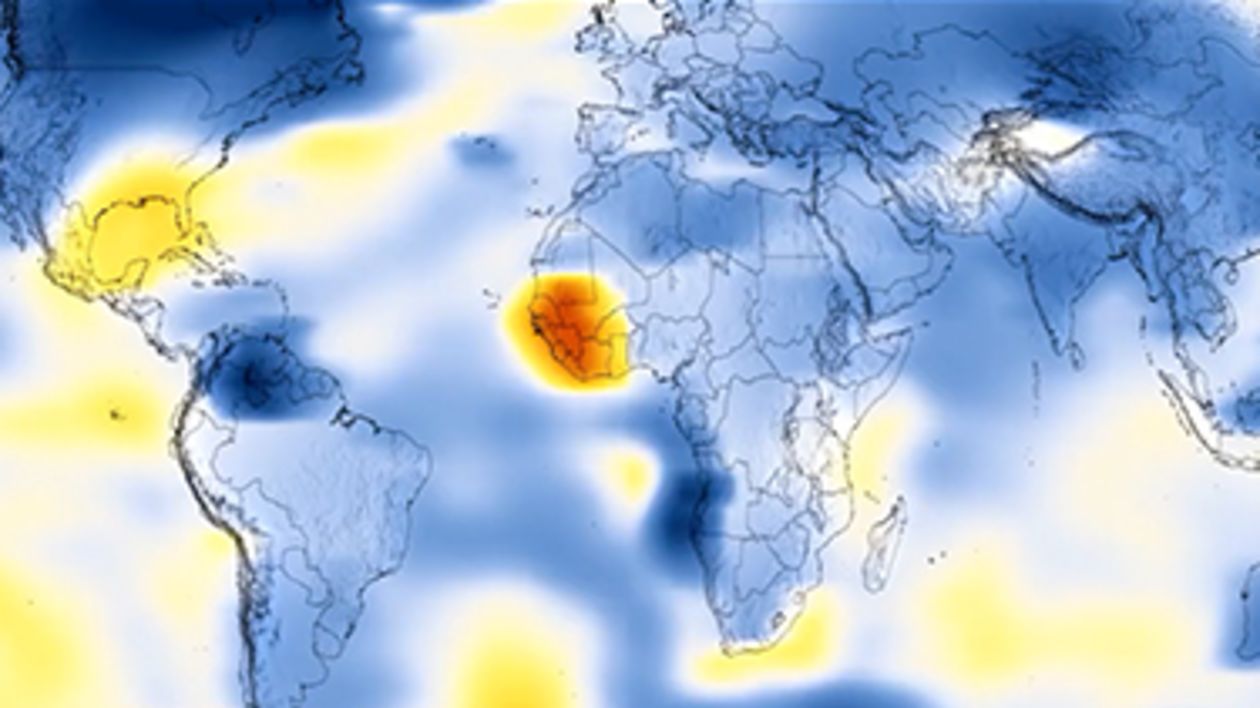
Global Warming

- Scripps Institution of Oceanography at UC San Diego
Global Average Carbon Dioxide Concentration (ppm)

- 1950s vs 2010s
Frost-free Regions Over Asia
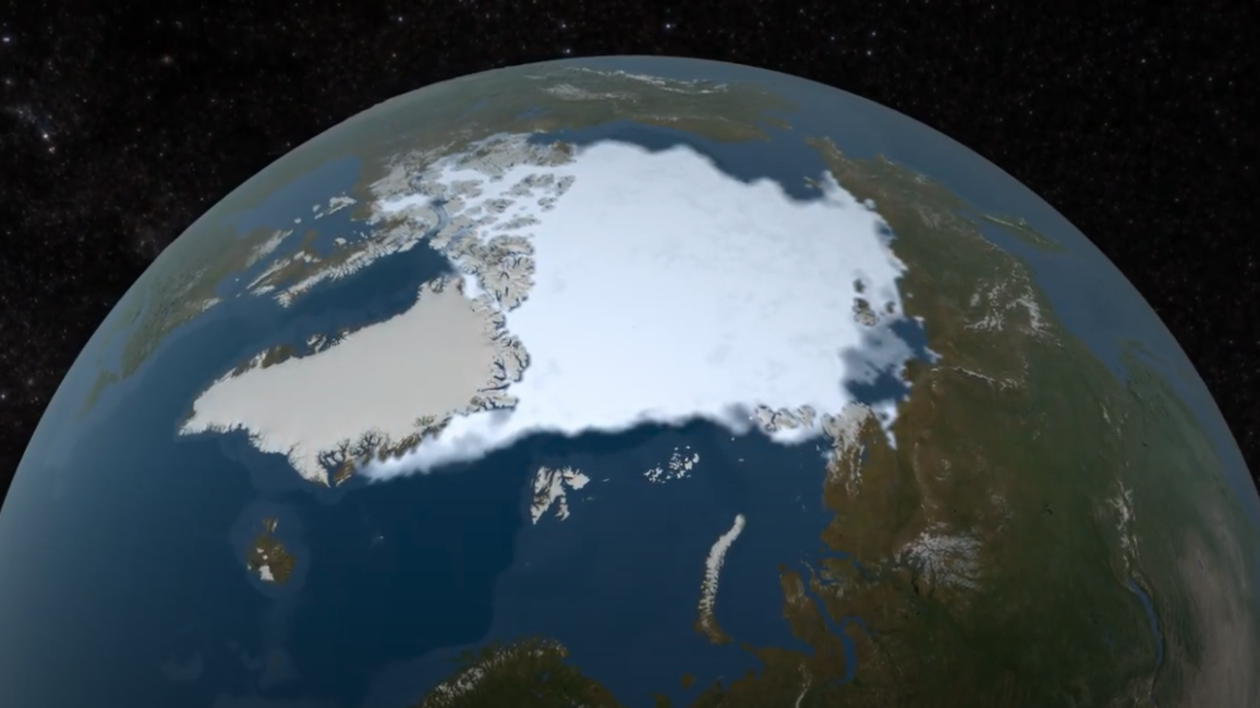
Annual Arctic Sea Ice Minimum Area
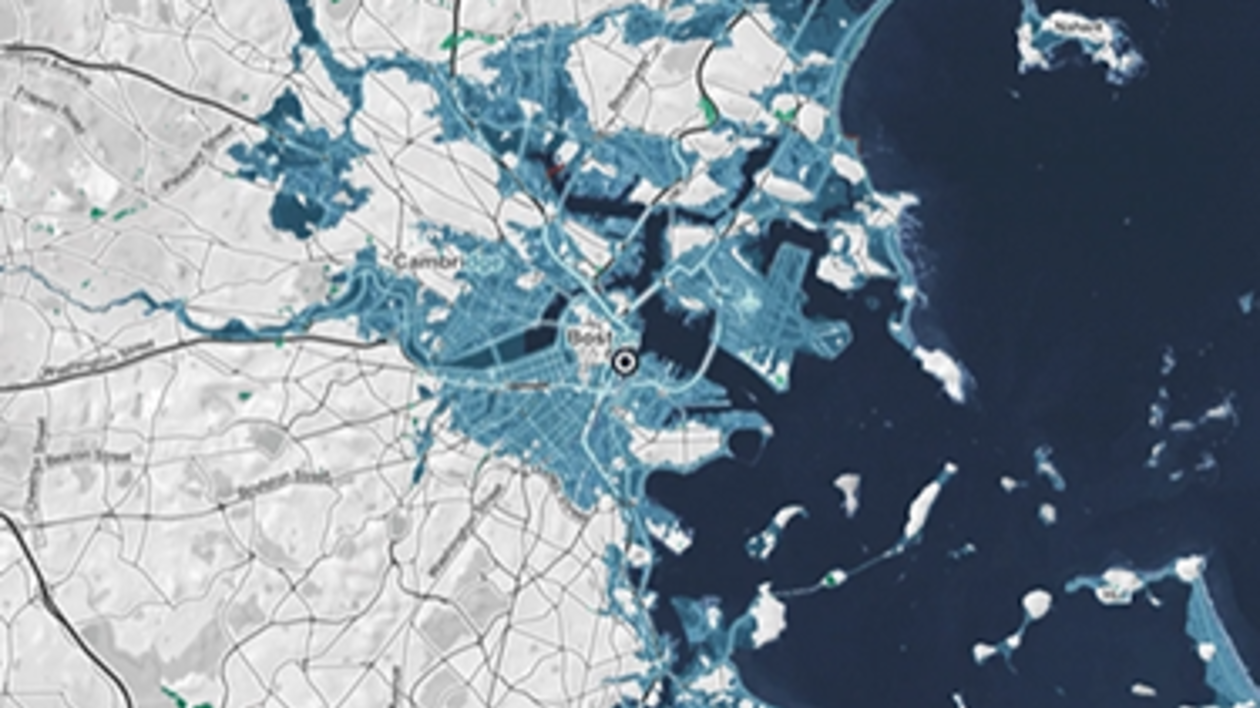
- Climate Central
Surging Seas in Boston, Venice, Tokyo, and Hong Kong
- “ Special Report: Global Warming of 1.5° C ,” Intergovernmental Panel on Climate Change (IPCC), 2018, accessed October 8, 2019.
- “ Global Temperature ,” National Aeronautics and Space Administration (NASA), 2019, accessed September 8, 2019.
- “ July 2019 Was Hottest Month on Record for the Planet ,” National Oceanic and Atmospheric Administration (NOAA), August 15, 2019.
- “ The Global Risks Report 2019 ,” World Economic Forum (WEF), January 15, 2019.
- “ Climate Change and Health ,” World Health Organization (WHO), February 1, 2018.
- “ Let’s Talk About Climate Migrants, Not Climate Refugees ,” United Nations (UN), June 6, 2019.
- “ Climate change and health ,” World Health Organization (WHO), February 1, 2018.
- “ Summary for policymakers of the global assessment report on biodiversity and ecosystem services of the Intergovernmental Science-Policy Platform on Biodiversity and Ecosystem Services ,” Intergovernmental Science-Policy Platform on Biodiversity and Ecosystem Services (IPBES), May 29, 2019.
- “ The effects of climate change ,” National Aeronautics and Space Administration (NASA), 2019, accessed September 8, 2019.
What's the Role of Business in Confronting Climate Change?
The 26 th annual United Nations Climate Change Conference of the Parties, also known as COP26, ended with a hard-fought pact that called on businesses and governments to meet their climate change goals faster.
The event followed an August report by the Intergovernmental Panel on Climate Change that not only amplified the reality that climate change is rapidly intensifying, but signaled a responsibility and opportunity to change course.
We asked Harvard Business School faculty affiliated with the Business & Environment Initiative what role business leaders should have in addressing climate change, and what business opportunities could emerge from efforts to mitigate and adapt to it. This is what they said:
Lauren Cohen : Fund environmental innovation
The recent IPCC climate report highlights two central findings:
1. There are considerable “unknown unknowns” in the future of climate change, and that these unknown unknowns may in fact represent the largest drivers of both climate change, and optimal solutions to address it.
2. And that governments alone—along with ultimately unenforceable pledges by those governments—will be insufficient to solve these challenges, necessitating an even larger role for private markets than first thought.
Combining both findings, we need to create a flexible system that can adapt and allocate capital nimbly as these unknown unknowns arise and take prominence. The best way to do this will be through a combination of flexible ex-ante incentives, along with ex-post mechanisms to reallocate resources quickly. Namely, sequential, staged-round funding in environmental innovation should form a bedrock of all solutions proposed, from public to private capital funding.
Lauren Cohen is the L.E. Simmons Professor in the Finance & Entrepreneurial Management Units.
Boris Vallée : Make decarbonization profitable
Two words come to my mind when thinking about business leaders and the climate crisis we are facing: responsibility and opportunity. Businesses have been a large source of carbon emissions themselves, and maybe even more importantly, businesses have been (and often still are) advocating for actions and behaviors that are highly carbon intensive. Then, there is also mounting evidence that certain business leaders have been actively concealing important research, lobbying to undermine regulatory efforts, and attempting to influence the scientific consensus and the public opinion on the impact of human actions on climate.
The responsibility of the business world in the situation we are in is therefore immense and unquestionable, and reminds us that capitalism is a means and not an end, and should be treated as such.
But by the same token, businesses can have a disproportionate impact in addressing the current situation, as capitalism is an extremely powerful engine that can operate with agility. If enough will is put into aligning profit with decarbonization, business leaders should be able to drive large scale impact while generating an abundance of profitable business opportunities. The awareness to the need for this alignment is rising among both business leaders and investors, but we need to turbocharge it if we want to have a shot at avoiding the worst.
Boris Vallée is the Torstein Hagen Associate Professor of Business Administration in the Finance Unit.
John Macomber : Combine forces to increase impact
COP26 in Glasgow makes it clear that global political leaders will not be able to coordinate a big worldwide response to climate and economic pressures. Therefore, society will need to make choices at every level and in almost every location—from homeowner to business to investor to government—about what to protect, when to plan for rebound and recovery, and what assets—and individuals—to not protect in the face of river flooding, wildfire, storm surge, and drought.
Business leaders, including capital providers, can work to preserve shared value so that we the people aren’t all hurt by chaos in the decades ahead. This involves thoughtful benefit-cost analysis that looks into a future where the exposures are uncertain, and also not evenly distributed.
The best investors, operators, innovators, and policymakers will assess probabilities of the perils as they evolve over time. They will fully count the value of co-benefits in public health and environmental justice as they filter their opportunities in construction, finance, engineering, sensors, and climate risk modeling.
Crucially, the most competitive districts and cities will figure out ways for many sources of capital to combine forces, region by region, toward coordinated long-view responses. This will lead to measurably better results for whole communities than can obtained just by diffuse investments in scattered pockets of resilience. The laggards, in contrast, will see value destroyed and they will fall behind.
John Macomber ( @cleantechcities ) is a senior lecturer and co-author of Healthy Buildings: How Indoor Spaces Drive Performance and Productivity.
Rebecca Henderson : Build meaningful partnerships
Business leaders have two roles in this extraordinary moment. The first is to move as fast as possible to reduce greenhouse gas emissions from their own operations and from their supply chains. It’s increasingly clear that many firms can cut their emissions by as much as 50 percent relatively quickly and see a strong return on capital as they do so.
Trane Technologies , for example, has committed to taking a gigaton of carbon out of their customers’ operations by upgrading their HVAC equipment—and is confident that everyone will make money in the process.
The second is to support effective climate regulation. Decarbonizing the world’s economy requires rebuilding not only the entire electric power industry, but also transportation, infrastructure, construction and agriculture. Action by individual firms can take us a long way, but we won’t solve the problem of climate change without building real partnerships between the public and private sector to ensure that everyone has the skills—and the incentives!—to reduce their emissions. Climate change threatens the health of the entire economy. Business can lead the way by insisting that politicians act now to ensure our future.
Rebecca Henderson ( @RebeccaReCap ) is the John and Natty McArthur University Professor and author of Reimagining Capitalism in a World on Fire .
Joseph Lassiter : Support the developing world
Rapidly lowering fossil carbon emissions, while incredibly important to many, must not allow us to ignore the urgent immediate needs of much of humanity. The world needs abundant quantities of clean, 24x7x365, reliable, geopolitically secure and affordable energy NOW to revitalize and redesign the stagnant industries in the developed worked and to relieve and redress the human suffering in the developing world. There has to be a politically realistic path from the realities of the present to the promise of the future that meets the urgent, immediate concerns of those whose voices are often too easily downplayed or even ignored in the drive for a net-zero future.
Joseph Lassiter is the Senator John Heinz Professor of Management Practice in Environmental Management, Retired.
Shawn Cole : Bolster impact investing
Business leaders should embrace evolving capital markets, and seek to communicate to investors how their businesses will navigate the upcoming climate transition. We are seeing significantly greater commitment from both asset owners and asset managers to engage with management to seek meaningful change.
This was perhaps most clear recently when Engine No. 1, a new impact investing firm with a tiny stake in ExxonMobil (less than $50 million), succeeded in a proxy contest to place three new directors on the board of what was once the largest corporation in the world. They couldn’t have succeeded without the support of BlackRock, State Street, and Vanguard.
While disclosure is and will continue to be important, businesses must dramatically reduce their carbon footprint to stave off the worst effects of climate change. Companies with compelling strategies will attract capital on attractive terms.
Shawn Cole is the John G. McLean Professor of Business Administration in the Finance Unit.
Max Bazerman : Lead with moral conviction
Moral leaders have an obligation to accept science, and identify the role that they are playing in climate change. Moral leaders have an obligation to consider factors beyond profit maximization. Those other factors should include the rights of future generations. And, moral leaders have an obligation to think about how they can change not only their own behavior, but how they can influence the behavior of those whom they lead.
Max Bazerman ( @BazermanMax ) is the Jesse Isidor Straus Professor of Business Administration and author of Better, Not Perfect: A Realist’s Guide to Maximum Sustainable Goodness .
Lynda Applegate : Mine the research
The planet is in trouble and we need a combination of science, technology, community relationships and innovation to fix it. I have been conducting research and developing curriculum materials on innovative approaches to addressing the climate change crisis through a combination of sustainable energy technology innovation and partnership ecosystem development approaches since 2015. One of my earliest cases explored the launch of Hyperloop Transportation Technologies through a partnership ecosystem that included entrepreneurial startups, government agencies, and scientists.
More recently, I completed a case on the launch of a Conservation Innovation Center through a partnership ecosystem led by nonprofit conservation firms (including the Chesapeake Conservancy and the Lincoln Land Trust), technology companies (including Microsoft’s and the Environmental Systems Research Institute’s AI for Earth initiative), government agencies (including the Department of Agriculture and Forest Services and the US Department of the Interior), prominent nongovernmental organizations (including The Nature Conservancy and the National Parks Conservation), and the World Bank.
Another recent case examines the launch of Powerley, a new technology start-up that was launched as a partnership between DTE—an electric utility in Michigan—and Vectorform—a digital innovation consultancy and software platform provider. The Powerley case deals with how to create a platform to link the “voice of the consumer” to data from smart grids and other smart home/smart city data sources. These cases emphasize the need for partnerships and innovation as core to solving the climate crisis.
Lynda Applegate is the Baker Foundation Professor and the Sarofim-Rock Professor of Business Administration, Emerita.
Lynn Schenk is director of the HBS Business & Environment Initiative and Dina Gerdeman is senior editor of Working Knowledge. [Image: iStockphoto/AsiaVision]
- 06 May 2024
- Research & Ideas
The Critical Minutes After a Virtual Meeting That Can Build Up or Tear Down Teams
- 03 May 2024
How Much Does Proximity Influence Startup Innovation? 20 Meters' Worth to Be Exact
- 25 Jan 2022
More Proof That Money Can Buy Happiness (or a Life with Less Stress)
- 24 Jan 2024
Why Boeing’s Problems with the 737 MAX Began More Than 25 Years Ago
- 26 Apr 2024
Deion Sanders' Prime Lessons for Leading a Team to Victory
- Corporate Social Responsibility and Impact
- Environmental Sustainability
- Weather and Climate Change
Sign up for our weekly newsletter

Three key ways to future-proof business against climate change
There are still several opportunities to future-proof business and rise to the challenge of creating a more sustainable future for all, says Penny Joseph, Head of Resilience and Climate Change Adaptation at Sydney Water
Climate change is no longer a distant threat for businesses. According to a Deloitte Global survey on business’ views on environmental sustainability, 30 per cent of executives say their organisations already feel the operational impacts of climate-related disasters. More than a quarter are facing a scarcity of resources because of it. While 80 per cent of executives say they are concerned about climate change, the pandemic and economic downturn have stalled ambitious actions. So what can businesses do today to mitigate the effects of climate change? Is it too late?
According to Penny Joseph , Head of Resilience and Climate Change Adaptation at Sydney Water, and AGSM MBA Executive (2019) and UNSW Engineering (1998) alumna, businesses still have many opportunities to progress and create sustainable business models. “Break down the big problems into smaller problems. You’ll be able to see that there are lots of different things you can act upon. And when you do that, you can start to feel positive about the future,” said Joseph, who recently discussed the issue as part of the AGSM @ UNSW Business School Business of Climate Change podcast.

“We have so many opportunities to act on different small and large things. I’m not saying that we should be complacent because, of course, we should be acting with intent, but we should also be, I think, optimistic about the future. If you’re not optimistic about the future, then you may as well pack up now,” she said.
But she also said a team effort and initiatives that bring together different levels of expertise are required to address the impacts of climate change. “There are so many opportunities that we have so much new technology that we can utilise, and so much low hanging fruit… it does require a lot of people through the organisation who contribute their particular skill sets. So it’s certainly not just one team or one small person that is looking into those issues.”
“I absolutely can’t achieve my outcomes without utilising other teams. And other teams would say the same thing,” she added.
We already know that climate change affects business. So how can businesses prepare for climate change and build more sustainable business models?


1. Look for progress rather than solutions to future-proof your business
The world can't just stop producing carbon emissions today. But countries can reduce emissions to zero gradually. So think about how your organisation or team can progress complex issues rather than attempting to solve them straight away. And one approach Ms Joseph uses to look at problems is through the Cynefin framework to aid in her decision-making. Created in 1999 by Dave Snowden when he worked for IBM Global Services, the Cynefin framework has been described as a “sense-making device”.
Cynefin offers five decision-making contexts or “domains”, explained Ms Joesph. First, there’s clear (known until 2014 as simple), then complicated, complex, chaotic, and finally disorder. These ideas help managers identify how they perceive situations and make sense of their own and other people’s behaviour.
“The biggest thing I encourage for people is just to break down the big problems into smaller problems. If you can do that, you’ll be able to see that there are lots of different things you can act upon. And when you do that, you can start to feel positive about the future. And you can see the positive outcomes that we can each achieve,” said Ms Joseph.
Read more: How resilient is the insurance industry against climate change?
2. Consider ‘optioneering’ to mitigate climate risk and financial risk
“I would encourage people to take or make decisions that open up more options. Because that way you’re actually progressing forward into circumstances that are unknown, you give yourself more ways to respond in the future,” said Ms Joseph.
Optioneering is the term she used to describe the in-depth consideration of various alternatives and options to find the best or preferred alternative or option. Optioneering means you consider a broad range of alternatives and options to ensure that any solution is the best fit and makes the best use of resources. For example, how might optioneering play a role in your supply chain? Or in your approach to risk management?
“Try to keep a wide variety of options open as long as you can, so, so that you’ve got space to adapt in different directions as things change,” she said.

3. Focus on leadership instead of management
Climate change significantly affects the things we take for granted, including our water supply, and it’s easy to become pessimistic about the future. But the world is still at a tipping point – there are 10 years left to prevent irreversible damage from climate change. So business leaders today are perhaps the last generation that can help in the fight to cut carbon emissions and prevent irreparable damage to our planet. And it is undoubtedly possible to rise to the challenge and plan for the future, urged Ms Joseph.
But leaders need to look for what they can start doing now and get busy. “There’s actually a lot of people, certainly in our organisation, but I’m not sure about others, that are actually wanting to do the right thing. So we should be trying to lead in a way that empowers people in our organisations, and that’s really important and sort of the keys to success,” she said.
Indeed, there are significant benefits that come from a solid commitment to sustainability within organisations. As well as being good for the planet, action on climate change at the business level is also an opportunity to attract sustainable investment, according to Dr Kingsley Yuen Lung Fong, Associate Professor and Program Director of the Master of Financial Planning at UNSW Business School.
Read more: Sustainable investment is on the rise globally. Is Australia being left behind?
“Billions and billions of dollars continue to flow into sustainable investment vehicles – showing that investors have resolved to continue the agenda they see as important. It’s very important to act now because we are basically at the threshold of some of the environmental and social boundaries of the current global socio-economic systems. We have exponential growth in populations and resource consumptions, which is not sustainable in the long run,” he said.
Prof. Fong spoke about some of the long, medium and short-term strategies for companies wanting to future-proof their business models and attract sustainable investment. One of them is to get educated about what responsible investors are looking for to think about the purpose of the business and the products that will be marketable and sellable in an environment where there will undoubtedly be expectations on the company’s sustainability.
Listen to the full episode on The Business of Climate Change by downloading the podcast here , or click here for more episodes in the series.
You are free to republish this article both online and in print. We ask that you follow some simple guidelines .
Please do not edit the piece, ensure that you attribute the author, their institute, and mention that the article was originally published on Business Think.
By copying the HTML below, you will be adhering to all our guidelines.
Press Ctrl-C to copy

Microsoft’s Kevin Peesker on ethical AI and bridging the tech skills gap
How mobile app data privacy concerns impact firm performance, three steps for leaders to harness ai-powered decision-making, what really happens when tourists turn to algorithms for fair pricing.
About Chubb: About Chubb
About Chubb: About Chubb in the U.S.
About Chubb: Careers
About Chubb: Citizenship
About Chubb: Investors
About Chubb: News
Claims: Claims
Claims: Claims Difference
Claims: Claims Resources
Claims: Report a Claim
Login / Pay My Bill: Login for Business
Login / Pay My Bill: Login for Individuals
Login / Pay My Bill: QuickPay for Businesses
Login / Pay My Bill: QuickPay for Individuals
Login / Pay My Bill: Login to CRS
Contact Us: Contact Us
Contact Us: Global Offices

- File a claim
- Get a quote
Climate change: What are the negative effects on businesses?

Carbon dioxide (CO2) emissions from the burning of fossil fuels (such as coal, oil, gasoline, and natural gas) have created a warming “ greenhouse effect ” around the planet. The impacts of this global warming are far-reaching, harming people, property, and businesses worldwide. No matter what industry or region you’re in, it is almost impossible to escape the effects of climate change – and damages in some areas are projected to be in the hundreds of billions of dollars annually through the end of the 21st Century. 1 It’s critical, therefore, to address the immediate pressures that climate-related issues put on your company’s bottom line.
Here are some things you need to know to help prepare for and mitigate the impact of climate change on your organization.
Natural disasters and climate change
The trend toward higher temperatures has caused an increase in the severity of natural catastrophes, with weather events such as hurricanes, windstorms, and floods becoming more and more destructive. Indeed, the United States saw an unprecedented 22 weather and climate disasters that caused at least a billion dollars worth of damage in 2020 alone. Hailstorms too are on the rise – both in terms of storm frequency and the size of hailstones – increasing the risk of extensive damage to vehicle fleets and buildings. 2 Climate change is also contributing to more unpredictable weather patterns. For example, Texas experienced record snowfalls in 2021, resulting in more than 100 deaths, 4 – 5 million people left without power, and an estimated $295 billion in losses. 3 Not all weather events are necessarily caused by climate change, but patterns in weather events are indicative of climate trends.
Economic impact of climate change on business
Businesses are facing a transition period where the risks and economic outcomes of climate change are in flux, 4 but some of the biggest threats are in the areas of:
- Operations – Every industry faces different perils from climate change, but all can affect the bottom line. In manufacturing, for example, extreme weather events can cause costly delivery delays and damage to facilities and equipment that can warrant full operational shutdowns. In key agricultural areas, higher temperatures combined with dropping precipitation and soil moisture levels increase the number of wildfire-prone days by 20 to 50%. 5 This affects not only property and farm productivity but also crops and food supply. Even leisure activity industries are affected by climate change — for example, many ski resorts are being hobbled financially by warmer weather and lower snow amounts.
- Resourcing – When your business relies on physical or natural resources, impacts from climate change can be a risk, particularly to your supply chain. Weather-related shipping issues, lack of parts availability due to supplier manufacturing disruptions, water scarcity because of drought conditions and power outages brought about by storms can hamper production and compromise product quality. In addition, there are human resourcing challenges — for example, staff shortages due to disaster displacement — that can also deal a blow to productivity.
- Liability – In addition to the commercial liabilities associated with business disruptions, there are legal and corporate reporting implications to your internal environmental practices. For example, energy and utility companies that deal in fossil fuels have been targeted with lawsuits to hold them accountable. Rapidly evolving emissions-related laws and other regulations can leave your company open to legal action or local fines (for example, for outdated, non-compliant oil tanks). More than ever, stakeholders — customers, investors, and employees — want environmental sustainability to be an integral part of the brands and companies with which they engage. An environmental incident or even the perception your organization is not environmentally responsible can cause reputational damage –and, increasingly, executives may be held personally liable.

Strategies to mitigate the effects of climate change on your business
Consultants and organizations like the United Nation’s Intergovernmental Panel on Climate Change (IPCC) have acknowledged that though there’s no way to predict every peril, you can prepare for and reduce potential adverse effects. Protect your business from extreme weather Before natural disasters happen, understand how they might impact your business and follow best practices to mitigate damage. Learn how you can bolster your facilities and tailor emergency preparedness plans for specific natural catastrophes here:
- Cold Weather
To reduce the risk of water damage consider IoT early warning technologies such as moisture detection systems . Assess exposures and review your business continuity plan From weather patterns in your geographic location to hazards unique to your industry, risk engineering services can help you gauge where your business is exposed to climate change-related perils. Having a business continuity plan tailored to your company’s specific exposures will help ensure that a climate catastrophe doesn’t mean irreparable damage to your profits — or the end of your business. Create resiliency in your supply chain Disasters related to climate change don’t only affect your facilities, they can also impact the suppliers your business relies on. Guard against supply chain vulnerabilities by assessing vendor risks, potential shipping issues, and having alternate backup suppliers in place. Review your insurance coverages Work with your agent or broker to ensure your business insurance policies protect against your most up-to-date exposures, such as liability coverages that help protect your company and your executives against environmental negligence claims. Consider property policies that allow you to repair damaged facilities up to Leadership in Energy and Environmental Design (LEED) certified standards.
How can your company reduce its carbon footprint?
Along with preparing for the negative effects of climate change, your business can also take steps to be part of the solution. Many institutions are reducing their carbon footprint, working toward an eventual NetZero goal, and discovering the economic benefits of doing so.
- Assess, reduce and “green” your company’s energy usage — Buildings account for a large percentage of energy usage. Adopt energy reduction practices and utilize green energy (solar, wind power) for your facilities.
- Consider carbon credits — Though this financial instrument is still in its infancy, it’s a way of offsetting your company’s carbon emissions.
- Engage your employees in the effort — Your workers are closest to your processes and can be a great source of ideas to save energy in many areas of the business.
- Pivot where possible — The climate change crisis is an opportunity for your company to explore new, more sustainable ways of operating — and potentially even new sources of income.
Don’t forget to measure and communicate your efforts. Corporate reports that reflect sustainable goals help amplify to both your internal and external stakeholders — and the public at large — your company’s commitment to mitigating the effects of climate change both for your business and for the planet.
1 Nature Climate Change Journal: Climate damages and adaptation potential across diverse sectors of the United States
2 Nature.com: The effects of climate change on hailstorms
3 Earth.org: How Climate Change is Driving a Deep Freeze into Texas
4 UN Environment Programme: Insuring the Climate Transition Report
5 ScienceDaily: Large, high-intensity forest fires will increase
Insights & Resources
We keep you informed — and your business protected — with these helpful articles.
This document is advisory in nature and is offered as a resource to be used together with your professional insurance advisors in maintaining a loss prevention program. It is an overview only, and is not intended as a substitute for consultation with your insurance broker, or for legal, engineering or other professional advice.
Chubb is the marketing name used to refer to subsidiaries of Chubb Limited providing insurance and related services. For a list of these subsidiaries, please visit our website at www.chubb.com . Insurance provided by ACE American Insurance Company and its U.S. based Chubb underwriting company affiliates. All products may not be available in all states. This communication contains product summaries only. Coverage is subject to the language of the policies as actually issued. Surplus lines insurance sold only through licensed surplus lines producers. Chubb, 202 Hall's Mill Road, Whitehouse Station, NJ 08889-1600.

Seeking a business insurance quote?
We can help with that.
- Search Search Please fill out this field.
- Stock Trading
- Stock Trading Strategy & Education
7 Ways Climate Change Affects Companies
Katrina Ávila Munichiello is an experienced editor, writer, fact-checker, and proofreader with more than fourteen years of experience working with print and online publications.
:max_bytes(150000):strip_icc():format(webp)/KatrinaAvilaMunichiellophoto-9d116d50f0874b61887d2d214d440889.jpg)
It's not a new idea that climate change will have an impact on businesses as much as on any other aspect of our lives. In fact, "Climate Change as Systemic Financial Risk" even served as the topic of a keynote address to regulators by Securities and Exchange Commissioner Allison Herren Lee at the end of 2020.
The Securities and Exchange Commission (SEC) is not exactly at the center of U.S. environmental policy. Nonetheless, since 2010 the SEC has required public companies to disclose to their shareholders any issues related to climate change that could have a significant impact on their business operations.
Those regulations, and U.S. environmental policy in general, are very much the subject of upcoming change with the Biden administration making it a matter of key legislation, especially in 2022.
Biden's ambitious domestic agenda known as "Build Back Better" is currently part of the broader Inflation Reduction Act of 2022 , which includes $300 billion earmarked for reducing carbon emissions and promoting clean energy. That legislation was approved by Congress and signed into law by President Biden on Aug. 16, 2022.
Key Takeaways
- Changing weather patterns may pose the most dramatic risk to businesses large and small.
- Emission control systems can be so expensive that public companies are required to report them as business costs.
- Cap and trade programs are in effect in many countries and at least 11 U.S. states.
- Climate change alters consumer behavior, to the detriment of some businesses and the benefit of others.
The Issues Worth Disclosing
Nevertheless, the issues that the SEC finds worth disclosing are a good indicator of the risk factors to businesses that climate change poses. The SEC's guidance outlines a number of factors that companies should consider. Below are seven of the most significant.
Get perspective on quantifying the investing risks of climate change with The Green Investor podcast, episode 1.
Capital Expenditures for Emission Control Systems
Some companies have been required to spend significant amounts of money on upgrades to polluting facilities and on the installation of emission control systems in order to comply with regulations on greenhouse gas emissions.
The businesses hit most by these requirements are energy and utility companies that operate refineries and power plants.
Cap and Trade Rules
Cap-and-trade policies aim to lower carbon emissions by placing an upper limit on the amount of pollution a company can emit and allowing companies to sell any of their unused allowances to other companies.
Though many countries have introduced such programs, cap-and-trade policies have a checkered history in the U.S.
The state of California has its own program, one of the world's first and biggest, with mixed results. California's program is criticized for allowing the biggest and richest corporations to get away with business as usual, or even pollute more, while banking pollution allowances are bought from other companies.
On the other hand, 10 northeastern states have formed their own regional cap-and-trade consortium. However, the last federal proposal on cap-and-trade died in the U.S. Congress during the Obama administration.
Higher Prices for Goods and Services
Even companies that aren't in the energy industry can be indirectly affected by energy regulation and the costs they create.
Broad changes in prices for utilities and transportation must be passed on by suppliers. And the companies in the middle must pass them on to their customers.
Changing Weather Patterns
The SEC's 2010 report notes that climate change is expected to change weather patterns throughout the world. That reality has since been reiterated by many other sources, including the United Nations, the National Aeronautics and Space Administration (NASA), and the American Meteorological Society.
Storms are expected to become more severe, with a variety of negative consequences for businesses. These could spread well beyond the obvious losses for insurance companies.
International shipping could become more dangerous. Long-established agricultural regions could be decimated. Coastal communities and infrastructure could suffer repeatedly.
Changing Demand for Goods
The combination of changing prices and changing weather patterns create changes in demand for certain goods. Demand for cold-weather products such as heating oil and ski equipment might decline.
Then again, new opportunities are being created for environmentally-friendly corporations. Companies like Patagonia, Seventh Generation, and Dr. Bronner's have all found success by catering to consumers who make environmentally-conscious choices when they shop.
Obligations Under Foreign Regulations
Many, if not most, large public companies operate abroad as well as at home these days, and that places them under the jurisdiction of a wide range of climate change laws and regulations, whether or not the U.S. has adopted them.
For instance, the U.S. withdrew from the Paris Agreement on climate change in 2017, but 200 other nations are part of that agreement. Some are envisioning a global cap and trade system as a successor to the Kyoto Treaty, which expired in 2012.
American corporations are subject to those laws when they do business abroad.
Changing Public Perceptions
Reputation is supremely important to businesses and, these days, many want to earn reputations for environmental responsibility.
BP is one company that has invested heavily in this trend with its "Beyond Petroleum" campaign. The company has also invested billions in renewable energy projects to prove its sincerity.
"Going green" is, increasingly, good business. Salesforce, Nike, Apple, and Disney are among the corporations that have recently announced major environmental programs.
U.S. Securities and Exchange Commission. " Playing the Long Game: The Intersection of Climate Change Risk and Financial Regulation ."
U.S. Securities and Exchange Commission. " Commission Guidance Regarding Disclosure Related to Climate Change ."
The White House. " Fact Sheet: The Inflation Reduction Act ."
Smithsonian Magazine. " The Political History of Cap and Trade ."
Pro Publica. " Cap and Trade Is Supposed to Solve Climate Change, but Oil and Gas Company Emissions Are Up ."
United Nations. " Climate Action: The Science ."
NASA. " Global Climate Change: Vital Signs of the Planet ."
The American Meteorological Society. " State of the Climate ."
Grow Ensemble. " Environmentally Friendly Companies: 10 of Our Favorite Planet-Friendly Businesses ."
Green and Blue Tomorrow. " 10 Green Companies with Amazing Environmental Initiatives ."
:max_bytes(150000):strip_icc():format(webp)/environmental-economics.asp-FINAL-2-540263444c7d4b1fa8c07dcc5e1d4ca4.png)
- Terms of Service
- Editorial Policy
- Privacy Policy
- Your Privacy Choices
For the best Oliver Wyman website experience, please upgrade your browser to IE9 or later

- Global (English)
- India (English)
- Middle East (English)
- South Africa (English)
- Brazil (Português)
- China (中文版)
- Japan (日本語)
- Southeast Asia (English)
- Belgium (English)
- France (Français)
- Germany (Deutsch)
- Italy (Italiano)
- Netherlands (English)
- Nordics (English)
- Portugal (Português)
- Spain (Español)
- Switzerland (Deutsch)
- UK And Ireland (English)

Climate Change Is An Opportunity For Business To Thrive
By: Scott McDonald and Rob Bailey A version of this article previously appeared on the NACD blog, BoardTalk . This article appeared in BRINK News on September 29, 2020.
While it is often discussed in boardrooms as a major risk, climate change is also a business opportunity. The low-carbon transition creates opportunities for efficiency, innovation and growth that extend beyond high-carbon industries like energy and transport to all sectors. Companies can save energy and materials costs, serve new customer needs, enhance their reputations and better attract and retain talent — all as a consequence of working to reduce their emissions and those of their customers and suppliers.
Through their governance role, boards can help to ensure that climate opportunities are captured by reviewing corporate strategy and focusing on long-term value. This is truer than ever before as companies navigate the fallout from COVID-19 and plan for recovery: Executive teams are occupied with the “here and now” of operational and financial management, and boards will need to keep the pressure on management teams to engage with the strategic questions of what comes next. As we show below, those that apply a “green” lens to recovery planning could uncover trillions of dollars in low-carbon opportunities.
Cost Management
Green operations are lean operations, and companies with sufficient capital expenditure flexibility to make smart green investments can reduce their costs at a time when every dollar counts.
Research undertaken by Oliver Wyman and CDP , a nonprofit that runs the leading global climate-related disclosure system, found that European corporations are realizing significant operating cost savings from comparably modest spending on emissions reductions. Investments last year in low-carbon projects such as renewables and energy efficiency were expected to net companies $45 billion over the investments’ lifetimes — a savings of $20 for every metric ton of carbon dioxide equivalent avoided. The same is happening in the United States, where a 2017 analysis found that Fortune 500 companies were saving $24 per metric ton. Last year, U.S. corporations signed power purchase agreements with renewables developers that will bring 13.6 GW of clean energy into operation. This is equivalent to almost two-thirds of the generation capacity added in the United States last year ( 20.7 GW ) — renewables, fossil fuels and nuclear energy included.
Greener operations can also reduce capital costs. The rapid growth in green lending — where use of proceeds is tied to specific low-carbon projects — and sustainability-linked lending — where borrowing costs are linked to sustainability performance, but with flexibility as to how proceeds are used — provides new opportunities to access cheaper finance. For example , Prologis, Avangrid, CMS Energy and Xylem have all agreed to new credit arrangements with interest rates linked to sustainability performance, and U.S. banks are targeting this new market for growth.
Capitalizing on Changes in Behavior
The pandemic has imposed changes in working arrangements and lifestyles that may create opportunities to increase green efficiency savings. For example, a shift to remote working may provide opportunities to reduce travel and cut office use and energy costs. However, more fundamental shifts in attitudes may also be underway.
Research firm IPSOS Mori found that more than half of Americans (59%) think that climate change is as serious a problem as COVID-19 and want to see it prioritized in recovery planning — a finding replicated across the world. Companies that capitalize on these attitudes may be able to enhance brand loyalty and increase market share among concerned consumers. Research by New York University’s Stern Center for Sustainable Business has found that sustainable brands have increased their share of the U.S. market during the pandemic, demonstrating this trend.
These dynamics are also relevant to workforces. Strong corporate environmental performance is associated with increased staff satisfaction and attractiveness to talent, with the most popular companies producing significantly lower emissions per dollar of revenues than their peers.
Average Employer Emissions Intensity for Popular Companies Compared to Peers Metric tons of carbon dioxide equivalent per USD million revenue, 2019
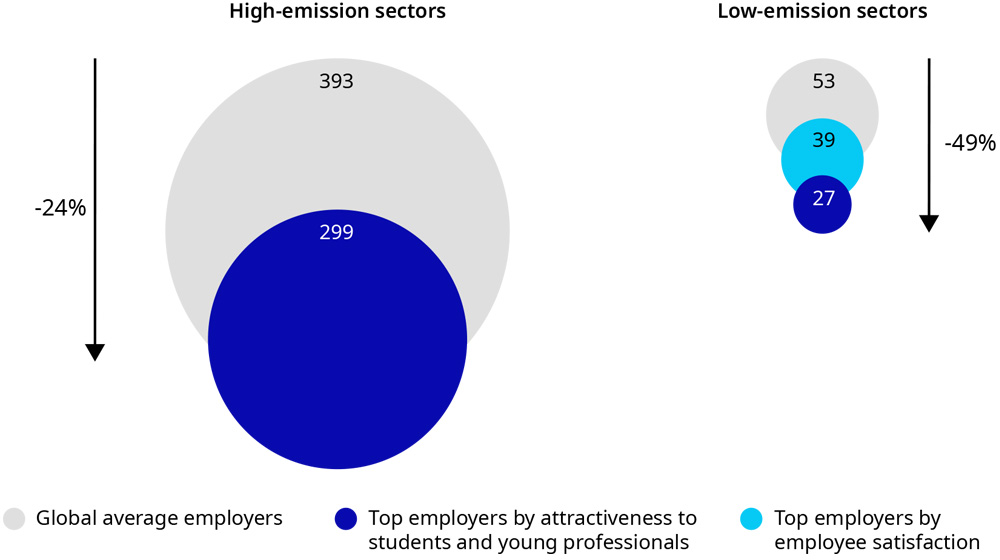
Source: Marsh & McLennan, based on data from MSCI, Fortune and Universum
Put another way, companies with leading environmental credentials will be at an advantage when recovery takes off and the competition for talent heats up. The benefits will continue to increase well after the pandemic has waned, as the labor force becomes increasingly dominated by millennial and Gen Z cohorts who place a higher premium on employers’ climate credentials.
New Revenue Opportunities
The low-carbon transition is creating demand for new sustainable goods and services worth trillions of dollars across all sectors. The transportation sector has seen rapid growth in zero-emission vehicles and the explosion of new mobility services. By 2030, electric vehicles may account for 28% of global passenger vehicle sales; this year, Tesla became the most valuable car maker in the world, despite generating less than one-tenth of the revenues of the second-most-valuable company. In the United States, the green economy is already worth $1.3 trillion , and it is growing at over 20% a year. Fifty percent of recent growth in consumer packaged goods has come from sustainable product lines, while sales of plant-based foods — which generally have a significantly lower carbon footprint than animal-based alternatives — have grown at five times the market rate, to reach $5 billion . New financial products and services are emerging in response — Oliver Wyman estimates that revenues from sustainable finance could amount to $100 – $150 billion a year.
Even before the coronavirus hit, the multitrillion-dollar scale of the low-carbon business opportunity was abundantly clear. In 2018, 225 of the world’s largest companies reported over $2 trillion of climate-related opportunities from low-carbon goods and services, displaying the potential to gain new forms of competitive advantage from shifting consumer preferences. Last year, European companies alone identified $1.4 trillion of opportunities — more than six times the cost to realize them. With the United States having the largest green economy in the world, low-carbon opportunities for American companies should be larger still.
The Green Horizon
COVID-19 has not erased these opportunities. The immediate challenges of dealing with the crisis may distract from decarbonization efforts in the short term, and the pace of transition may be slowed if government stimulus plans favor high-carbon activities over low-carbon ones — by providing royalties relief for oil and gas companies rather than providing incentives for efficiency technology upgrades or electric vehicles, for example. But the final destination — a zero-emission economy — is inevitable. This is for the simple reason that climate change will stop only once net global emissions have reached zero. The transition has a long way to go and a lot more value to create.
With many management teams focused on tactical matters of survival in the wake of the coronavirus pandemic, directors have a critical role to play in making sure that strategies keep sight of the trillions of dollars to be gained from low-carbon opportunities on the other side of the crisis. The prize is only going to get bigger.

OUR EXPERTISE
Industries .
- Communications, Media, And Technology
- Energy And Natural Resources
- Financial Services
- Government And Public Institutions
- Health And Life Sciences
- Industrial Products
- Private Equity And Principal Investors
- Retail And Consumer Goods
- Transportation And Services
- Velocity Podcast
capabilities
- Climate And Sustainability
- Oliver Wyman Engineers
- People And Organizational Performance
- Performance Transformation
- Pricing, Sales, And Marketing
- Risk Management
- Turnaround And Restructuring
- Oliver Wyman Quotient
IELTS Preparation with Liz: Free IELTS Tips and Lessons, 2024
- Test Information FAQ
- Band Scores
- IELTS Candidate Success Tips
- Computer IELTS: Pros & Cons
- How to Prepare
- Useful Links & Resources
- Recommended Books
- Writing Task 1
- Writing Task 2
- Speaking Part 1 Topics
- Speaking Part 2 Topics
- Speaking Part 3 Topics
- 100 Essay Questions
- On The Day Tips
- Top Results
- Advanced IELTS
IELTS Speaking Part 3: Environment
Below are some questions for the topic of the environment for IELTS speaking part 3.
- Are there many environmental problems in your country?
- Are people concerned about environmental problems in your country?
- Do you think enough is being done to deal with them?
- What can individuals do to help?
- Do you think older people have as much awareness of environmental problems as the younger generation?
- Do you believe that climate change is a serious problem?
- What causes climate change?
- Do you think recycling is important?
Here are some sample answers:
- Q) Are people concerned about environmental problems in your country?
- A) Well, it’s hard to say for sure. I think some people are concerned but probably not enough of them. There are people who take environmental problems seriously enough to actually recycle their rubbish appropriately but I don’t think there are enough people who concern themselves with resource depletion which I consider to be a pressing issue. So many people are using energy and buying products without any thought to the impact of their actions. We all know that the world’s resources are being used at an alarming rate but no one seems to actually feel it’s their responsibility to change the way they live. So, I guess, although there are some people who are concerned, it’s not enough and more people in my country need to change the way they live.
- Q) Do you believe climate change is a serious problem?
- A) Yes, I do. The issue of climate change has been growing over the past few decades and we are now witnessing serious changes in global weather patterns. While some countries are suffering heat waves, other countries are suffering from terrible snow storms. But that isn’t the worst of the problem. The changes in the climate are also causing extreme weather such as typhoons, earthquakes and tsunamis, which are devastating many countries. On top of that, there are also concerns about rising sea levels, which although not a problem now, will be a serious concern to any low lying country in the future. So, I feel that climate change is something which needs to be taken very seriously.
Recommended
- Environmental Problems Vocabulary
- More Speaking Part 3 Questions and Topics
Get my free lessons by email
Subscribe for free to get my new IELTS lessons sent to your email inbox.
Email Address
Speak Your Mind Cancel reply
Notify me of new posts by email.
Advanced IELTS Lessons & E-books

Click Below to Learn:
- IELTS Test Information
Copyright Notice
Copyright © Elizabeth Ferguson, 2014 – 2024
All rights reserved.
Privacy Policy & Disclaimer
- Click here: Privacy Policy
- Click here: Disclaimer
Return to top of page
Copyright © 2024 · Prose on Genesis Framework · WordPress · Log in
Featured Topics
Featured series.
A series of random questions answered by Harvard experts.
Explore the Gazette
Read the latest.
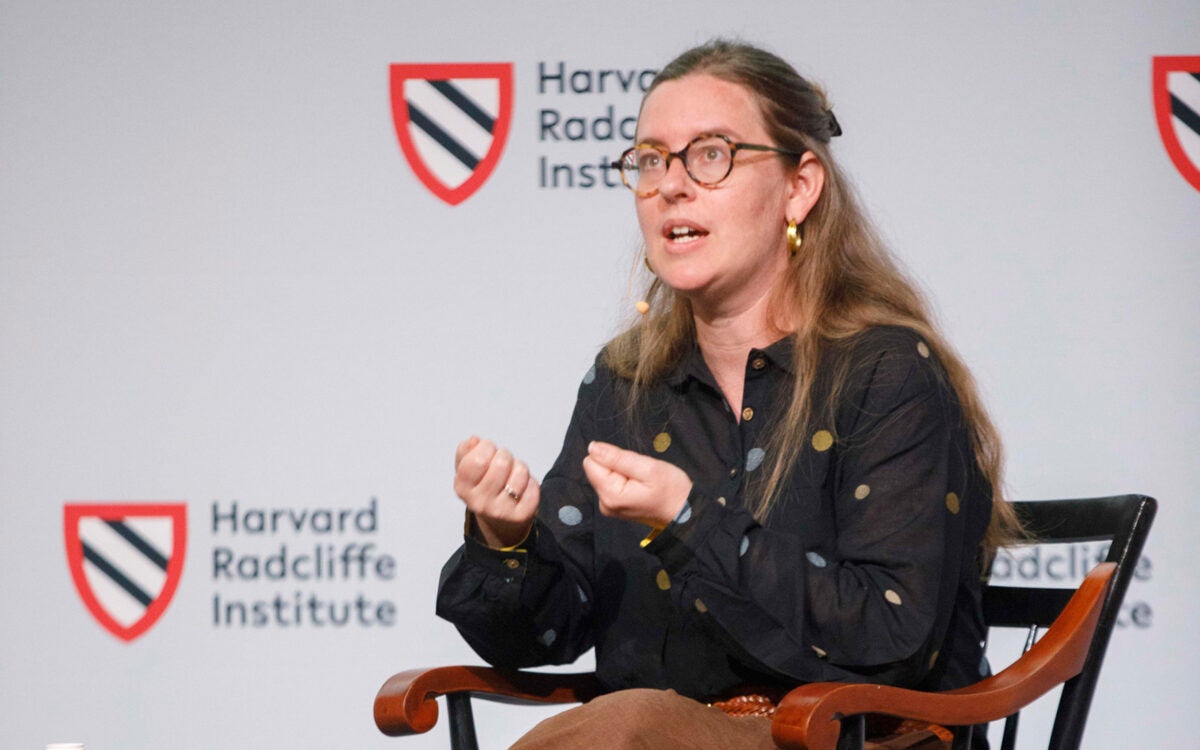
Got milk? Does it give you problems?

Roger Ware Brockett, 84

A Chekhov play relatable to Americans today
Business opportunities from climate change.

From Pixabay
Thanks to greenhouse gases, the Earth’s climate is changing. One of the main sources of these gases is business. However, business is also the main source of new products, services, and business models that may save us from wholesale climate calamity. But what are businesses doing to address climate change? What can — and should — they do?
“The untold story is that climate change offers opportunities as well as risks, and business is already changing,” said Michael Toffel, John Heinz Professor of Environmental Management at Harvard Business School (HBS) and faculty chair of the School’s Business & Environment Initiative . “Climate change is such a broad issue, and it’s affecting business in a wide variety of ways. And businesses are developing technologies, products, and new operating models in response.”
HBS is collaborating with WBUR and Boston University Questrom School of Business to run a five-part series called “Stepping Up: Business in the Era of Climate Change.” The series will launch on March 5 in WBUR’s CitySpace . Each event will focus on business in a particular sector, including real estate, food, transportation, and energy.
Speakers include local and national leaders such as Bryan Koop, executive vice president of Boston Properties; Kevin Butt, sustainability director of Toyota North America; and David Perry, CEO of Indigo Agriculture. Small companies that cater to new consumer preferences like Clover Food Lab, and environmental groups like Union of Concerned Scientists, are also on the program.
According to Toffel, growing awareness of climate change offers a unique opportunity for HBS to embark on new projects and increase its impact. Faculty are addressing climate change in their teaching and research. The first year MBA curriculum includes case discussions and assignments designed to foster climate change awareness in every student. This spring all MBA students will be taught the case, “Climate Change: Paris, and the road ahead.” Faculty have also written more than 20 teaching cases about how businesses are tackling climate change.
In partnership with HBS alumni clubs, the School’s Business & Environment Initiative has been organizing faculty-moderated alumni events to explore how business leaders in regions around the U.S. are confronting climate change. Each event addresses the specific climate-related challenge facing that region. In addition to the WBUR event series, the School will launch a podcast called “Climate Rising” this spring.
“Not all of the news about climate change is doom and gloom. Working with faculty from these two schools has allowed us to showcase how this problem is sparking new products and services, from lab-grown meat to offshore wind,” said WBUR’s Barbara Moran, senior producing editor of Earthwhile, a new team dedicated to reporting on environmental issues. “CitySpace is an ideal venue to reach a broad audience.” Tickets are available at wbur.org. The full program can be found here .
Share this article
You might like.
Biomolecular archaeologist looks at why most of world’s population has trouble digesting beverage that helped shape civilization

Memorial Minute — Faculty of Arts and Sciences

At first, Heidi Schreck wasn’t sure the world needed another take on ‘Uncle Vanya’
How old is too old to run?
No such thing, specialist says — but when your body is trying to tell you something, listen
Excited about new diet drug? This procedure seems better choice.
Study finds minimally invasive treatment more cost-effective over time, brings greater weight loss
How far has COVID set back students?
An economist, a policy expert, and a teacher explain why learning losses are worse than many parents realize

25,000+ students realised their study abroad dream with us. Take the first step today
Meet top uk universities from the comfort of your home, here’s your new year gift, one app for all your, study abroad needs, start your journey, track your progress, grow with the community and so much more.

Verification Code
An OTP has been sent to your registered mobile no. Please verify

Thanks for your comment !
Our team will review it before it's shown to our readers.

- Study Abroad Test Prep /
IELTS Daily Essay Topic: Some people believe that climate affects a person’s way of life.

- Updated on
- Apr 1, 2024

Brainstorming Ideas
- Climate affects a person’s hobbies, social interactions and clothing.
- When the weather turns cold people start to remain indoors and start engaging in activities such as reading or indoor sports.
- The interactions mostly become online and people have dietary changes as well. And the opposite happens in the case of hot weather.
- Climate change impacts our crops and also impacts the energy sector.
- People have started to utilise more renewable energy resources.
- Climate change affects a person’s behaviour, attitudes, and the way we see the world.
- For example, Seasonal Affective Disorder (SAD), a depression that is caused by changes in the seasons.
Q. Some people believe that climate affects a person’s way of life, while others believe that climate has a greater impact on a region’s economy. Discuss both views and give your opinion.
Ans . Climate is a powerful force that helps shape the lifestyle of individuals living in a particular region. While some people argue that it influences the way a person lives, others believe that it majorly impacts the economy of a region. I believe that climate has a greater influence on an individual’s way of life than it does on a region’s economy.
On one hand, climate undeniably affects the way a person lives. When the weather turns cold, people are more prone to spend time indoors which impacts their hobbies, social interactions and clothing. For instance, people start engaging themselves in indoor-centric hobbies such as reading, cooking and indoor sports. In contrast, hotter weather results in wearing lighter and breathable outfits and a desire for social gatherings with the consumption of fruits and cold beverages. Apart from activities and choice of clothes, climate change significantly impacts mood and mental health. Seasonal Affective Disorder is a prime example of how climate can influence people’s emotional well-being.
On the other hand, climate also significantly impacts the economy of a region. Agriculture, which is a major component of many economies, is highly dependent on climate. Crops require certain weather conditions to grow. For example, sudden frost can devastate the crop which leads to poor harvest and economic loss. Furthermore, climate can influence the energy sector.Sunnier areas tend to prioritize investments in solar power, while windier regions may shift their focus towards generating energy from wind turbines. These renewable energy sources not only bolster the economy but also foster sustainable development.
To conclude, although the economic consequences are undeniable, the immediate and pervasive influence on individual lifestyles leads me to believe that climate has a deeper impact on a person’s way of life.
Paraphrased Statement: Climate is a powerful force that helps shape the lifestyle of individuals living in a particular region. While some people argue that it influences the way a person lives, others believe that it majorly impacts the economy of a region.
Thesis Statement: I believe that climate has a greater influence on an individual’s way of life than it does on a region’s economy.
Body Paragraph 1-Topic Sentences: On one hand, climate undeniably affects the way a person lives.
Body Paragraph 1- Supporting Reasons and Explanations: When the weather turns cold, people are more prone to spend time indoors which impacts their hobbies, social interactions and clothing. For instance, people start engaging themselves in indoor-centric hobbies such as reading, cooking and indoor sports. In contrast, hotter weather results in wearing lighter and breathable outfits and a desire for social gatherings with the consumption of fruits and cold beverages. Apart from activities and choice of clothes, climate change significantly impacts mood and mental health. Seasonal Affective Disorder is a prime example of how climate can influence people’s emotional well-being.
Body Paragraph 2- Topic sentence: On the other hand, climate also significantly impacts the economy of a region.
Body paragraph 2- Supporting Reasons and Explanations: Agriculture, which is a major component of many economies, is highly dependent on climate. Crops require certain weather conditions to grow. For example, sudden frost can devastate the crop which leads to poor harvest and economic loss. Furthermore, climate can influence the energy sector. Sunnier areas tend to prioritize investments in solar power, while windier regions may shift their focus towards generating energy from wind turbines. These renewable energy sources not only bolster the economy but also foster sustainable development.
Conclusion: To conclude, although the economic consequences are undeniable, the immediate and pervasive influence on individual lifestyles leads me to believe that climate has a deeper impact on a person’s way of life.
Vocabulary in Use
Linkers and connectors used.
Following are the linkers and connectors used:
- On one hand
- On the other hand
- For example
- Furthermore
- In my opinion
- In addition
- To conclude
Are you preparing for IELTS? Check out this video to improve your writing skills for the IELTS exam given below👇.
Download the Leverage IELTS App today.
Need help preparing for IELTS? Check out the best IELTS preparation courses in the market offered in a live training environment by trusted educators. If you want to help studying abroad , call 1800572130 .
Purti Chawla
Purti is a CELTA, British Council, and IDP-certified language trainer. Having worked as a Study Abroad Test Prep Expert for the past 7 years, she has guided thousands of students towards their desirable scores in IELTS, TOEFL, GRE, GMAT and other language proficiency tests to study abroad. She is adept in molding learning strategies according to the needs of the learners and has built multiple courses at Leverage IELTS with result-oriented strategies. Proficient in test prep courses such as IELTS, TOEFL, PTE, and Duolingo, she loves to explore different classroom teaching methods, keeps continuously improving her own skills, and stays abreast with the latest teaching methodologies. She is a master trainer at Leverage Edu and aims to help thousands more through her expertise.
Leave a Reply Cancel reply
Save my name, email, and website in this browser for the next time I comment.
Contact no. *

Connect With Us
25,000+ students realised their study abroad dream with us. take the first step today..

Resend OTP in

Need help with?
Study abroad.
UK, Canada, US & More
IELTS, GRE, GMAT & More
Scholarship, Loans & Forex
Country Preference
New Zealand
Which English test are you planning to take?
Which academic test are you planning to take.
Not Sure yet
When are you planning to take the exam?
Already booked my exam slot
Within 2 Months
Want to learn about the test
Which Degree do you wish to pursue?
When do you want to start studying abroad.
January 2024
September 2024
What is your budget to study abroad?

How would you describe this article ?
Please rate this article
We would like to hear more.
Have something on your mind?

Make your study abroad dream a reality in January 2022 with
India's Biggest Virtual University Fair

Essex Direct Admission Day
Why attend .

Don't Miss Out
- Tài Liệu IELTS
- Kỹ năng nghe
- Kỹ năng nói
- Kỹ năng đọc
- Kỹ năng viết
- Tiếng Anh Trẻ Em
- Email: [email protected]
- Hotline: 0912.987.349 – 091.436.1212

- Luyện thi IELTS
Essay 16: Climate change
Some people think that instead of preventing climate change, we need to find a way to live with it. To what extent do you agree or disagree?
Climate change represents a major threat to life on Earth, but some people argue that we need to accept it rather than try to stop it. I completely disagree with this opinion, because I believe that we still have time to tackle this issue and reduce the human impact on the Earth’s climate.
There are various measures that governments and individuals could take to prevent, or at least mitigate, climate change. Governments could INTRODUCE LAWS TO LIMIT THE CARBON DIOXIDE EMISSIONS (đưa ra các luật lê hạn chế lượng C02 thải ra) that LEAD TO GLOBAL WARMING (dẫn tới sự nóng lên toàn cầu) . They could IMPOSE “GREEN TAXES” ON (áp đặt các loại thuế xanh lên) drivers, airline companies and other POLLUTERS (nguồn ô nhiễm), and they could INVEST IN RENEWABLE ENERGY PRODUCTION FROM SOLAR, WIND OR WATER POWER (đầu tư vào sản xuất năng lượng tái tạo từ năng lượng mặt trời, gió hoặc nước) . As individuals, we should also TRY TO LIMIT OUR CONTRIBUTION TO CLIMATE CHANGE (cố gắng hạn chế các hoạt động gây ra biến đổi khí hậu) , by BECOMING MORE ENERGY EFFICIENT (sử dụng năng lượng hiệu quả hơn), by FLYING LESS (dùng máy bay ít hơn) , and by using bicycles and public transport. Furthermore, the public can affect the actions of governments by VOTING FOR POLITICANTS WHO PROPOSE TO TACKLE CLIMATE CHANGE (bỏ phiếu cho các chính trị gia những người mà đưa ra giải pháp giải quyết vấn đề biến đổi khí hậu) , rather than for those who would prefer to ignore it.
If instead of taking the above measures we simply try to live with climate change, I believe that the consequences will BE DISASTROUS (thảm khốc) . To give just one example, I am not optimistic that we would be able to COPE WITH EVEN A SMALL RISE IN SEA LEVELS (đối phó với sự tăng lên của mực nước biển dù chỉ là nhỏ) . Millions of people WOULD BE DISPLACED by flooding (sẽ phải di dời bởi lũ lụt) , particularly ‘in countries that DO NOT HAVE THE MEANS TO SAFEGUARD LOW-LYING AREAS (không có phương tiện để bảo vệ các khu vực nằm thấp hơn so với mực nước biển) . These people would lose their homes and their jobs, and they WOULD BE FORCED TO MIGRATE TO NEARBY CITIES (bị buộc phải di chuyển đến các thành phố lân cận) or perhaps to other countries. The potential for human suffering would be huge, and it IS likely that WE WOULD SEE OUTBREAKS OF DISEASE AND FAMINE (chúng ta có thể sẽ phải thấy sự bùng phát của dịch bệnh và nạn đói) , as well as INCREASED HOMELESSNESS AND POVERTY (sự gia tăng nạn vo gia cư và nghèo đói) .
In conclusion, it is clear to me that we must address the problem of climate change, and I disagree with those who argue that we can find ways to live with it.
RELATED ARTICLES MORE FROM AUTHOR

Focus on Grammar

Perfect English Grammar

The Blue Book of Grammar and Punctuation
Leave a reply cancel reply.
Log in to leave a comment
Bài viết mới

Preparation and Practice for IELTS General Training

Easy English Conversation

Market Leader

Australia siết thị thực du học, du học sinh Việt cần...

Nhiều trường đại học hàng đầu tại Mỹ đang tăng mức...

Đài Loan cung cấp hàng nghìn học bổng 100% cho sinh...

Hai chương trình hỗ trợ du học sinh cho việc định...

Hơn 50 suất học bổng được trao bởi Đại học Bath...
Editor picks.

IELTS listenting test sample 20

5 bước chính chuẩn bị cho thi tiếng Anh IELTS

Bức ảnh đầu tiên về hố đen có ý nghĩa gì...
Popular posts.

IELTS Academic Reading Sample 78 – Tea Times

IELTS Listening Sample 14

IELTS Academic Reading Sample 67 – LOCKED DOORS, OPEN ACCESS
Popular category.
- Tài Liệu IELTS 310
- Kỹ năng nói 297
- Kỹ năng viết 171
- Kỹ năng nghe 118
- Kỹ năng đọc 109
- Tin tức sự kiện 82
- Luyện thi IELTS 68
HỌC TIẾNG ANH VỚI CÔ QUỲNH IELTS
Địa chỉ: 288 Tây Sơn, Trung Liệt, Đống Đa, Hà Nội || Điện thoại: 0912987349 – 02471091212 – 091 436 1212 || Email: [email protected]
- Bản đồ đường đi


IMAGES
VIDEO
COMMENTS
IELTS Essay: Climate Change and Business. Some think that climate change reforms will negatively affect business. Others feel they are an opportunity for businesses. Discuss both sides and give your own opinion. Some are of the belief that any prospective reforms to combat climate change will necessarily be injurious to businesses.
Re-orientate the topic to climate change / industrial pollution 600. Global warming essay. This global warming IELTS essay lesson is mostly about the need to vary your vocabulary when you write. This means thinking about the topic of the question of course but also thinking about what the question asks you to do - i.e. talk about causes etc.
Local businesses closing, such as fisheries and farms. Stagnated economic growth. Climate change and severe weather patterns are likely to exacerbate impoverished countries' and communities' existing vulnerabilities, in turn, increasing several health and economic risks. 7. Diminished Supplies.
These catastrophes claimed over 80% of the total global deaths through natural disasters, affected over 50 million people, and cost the region a total of $56.8 billion. The top risks according to the World Economic Forum's 2019 Regional Risks for Doing Business Report, do not feature impact of climate change on businessImage: World Economic ...
Bahçeşehir College is committed to increasing students' awareness of the changing world we live in. This climate change essay competition saw many students submitting well thought out pieces of writing. These essays were marked on their format, creativity, organisation, clarity, unity/development of thought, and grammar/mechanics.
The impact on business. We know already that vulnerable sectors such as agriculture will take a hit from climate change. We also know that severe weather - flooding, storms, heatwaves and fires - damages supply chains and disrupts business. There's also evidence that some retailers benefit from climate change as demand rises for air ...
The Intergovernmental Panel on Climate Change (IPCC), which includes more than 1,300 scientists from around the world, forecasts a temperature rise of 1.4° to 5.5° Celsius by 2100 with serious consequences for business and for the natural systems on which our current ways of life depend. According to the IPCC, greenhouse gas emissions must be ...
In 2015, the Paris Agreement, which is legally binding on climate change, has been accepted by approximately 191 countries to limit global warming to below 2, if possible, to 1.5. The countries have committed to achieve this primary goal and minimise global warming. To accomplish this goal requires all parties to put forward their best efforts ...
Climate change essay competition: Last exit before the bridge. We'd like to share an essay from one of this year's finalists in the Bahçeşehir essay competition, which was held in conjunction with our Cambridge team in Turkey and Bahçeşehir College, from 3-24 December. The chosen topic for essay submissions was 'climate change' and ...
Lauren Cohen: Fund environmental innovation. The recent IPCC climate report highlights two central findings: 1. There are considerable "unknown unknowns" in the future of climate change, and that these unknown unknowns may in fact represent the largest drivers of both climate change, and optimal solutions to address it. 2.
3. Focus on leadership instead of management. Climate change significantly affects the things we take for granted, including our water supply, and it's easy to become pessimistic about the future. But the world is still at a tipping point - there are 10 years left to prevent irreversible damage from climate change.
Public sector, consumer and life sciences/healthcare industries are the most worried about the business impacts of climate change, with over 80% of executives in these sectors expressing ...
Apart from that, the burning of fossil fuels like coal, oil, and gas for electricity, heat, and transportation contributes largely to the overall climate change across the globe. Effective mitigation strategies for climate change include harnessing renewable energy resources, boosting energy efficiency, and large-scale reforestation efforts.
Economic impact of climate change on business. Businesses are facing a transition period where the risks and economic outcomes of climate change are in flux, 4 but some of the biggest threats are in the areas of: Operations - Every industry faces different perils from climate change, but all can affect the bottom line. In manufacturing, for ...
Salesforce, Nike, Apple, and Disney are among the corporations that have recently announced major environmental programs. Climate change is a financial risk. Find out seven environmental ...
Climate is a complex system that includes the atmosphere, land masses, oceans, bodies of water, snow, ice floes, and living things. This system changes depending on internal or external factors, and this is called "Climate Change". The biggest cause of climate change is humans. With the industrial revolution that took place in the early ...
Rob Bailey Director of Climate Resilience, Marsh & McLennan Advantage. While it is often discussed in boardrooms as a major risk, climate change is also a business opportunity. The low-carbon transition creates opportunities for efficiency, innovation and growth that extend beyond high-carbon industries like energy and transport to all sectors.
A) Yes, I do. The issue of climate change has been growing over the past few decades and we are now witnessing serious changes in global weather patterns. While some countries are suffering heat waves, other countries are suffering from terrible snow storms. But that isn't the worst of the problem. The changes in the climate are also causing ...
Consequently, this transition mitigates the adverse effects of climate change, fosters cleaner air quality, and safeguards ecosystems for future generations. Body paragraph 1- Analysis: For instance, the affordability and accessibility of solar energy systems have improved, offering clean and sustainable power options for households and ...
HBS is collaborating with WBUR and Boston University Questrom School of Business to run a five-part series called "Stepping Up: Business in the Era of Climate Change.". The series will launch on March 5 in WBUR's CitySpace. Each event will focus on business in a particular sector, including real estate, food, transportation, and energy.
Apart from activities and choice of clothes, climate change significantly impacts mood and mental health. Seasonal Affective Disorder is a prime example of how climate can influence people's emotional well-being. Body Paragraph 2- Topic sentence: On the other hand, climate also significantly impacts the economy of a region.
Climate change represents a major threat to life on Earth, but some people argue that we need to accept it rather than try to stop it. I completely disagree with this opinion, because I believe that we still have time to tackle this issue and reduce the human impact on the Earth's climate. There are various measures that governments and ...